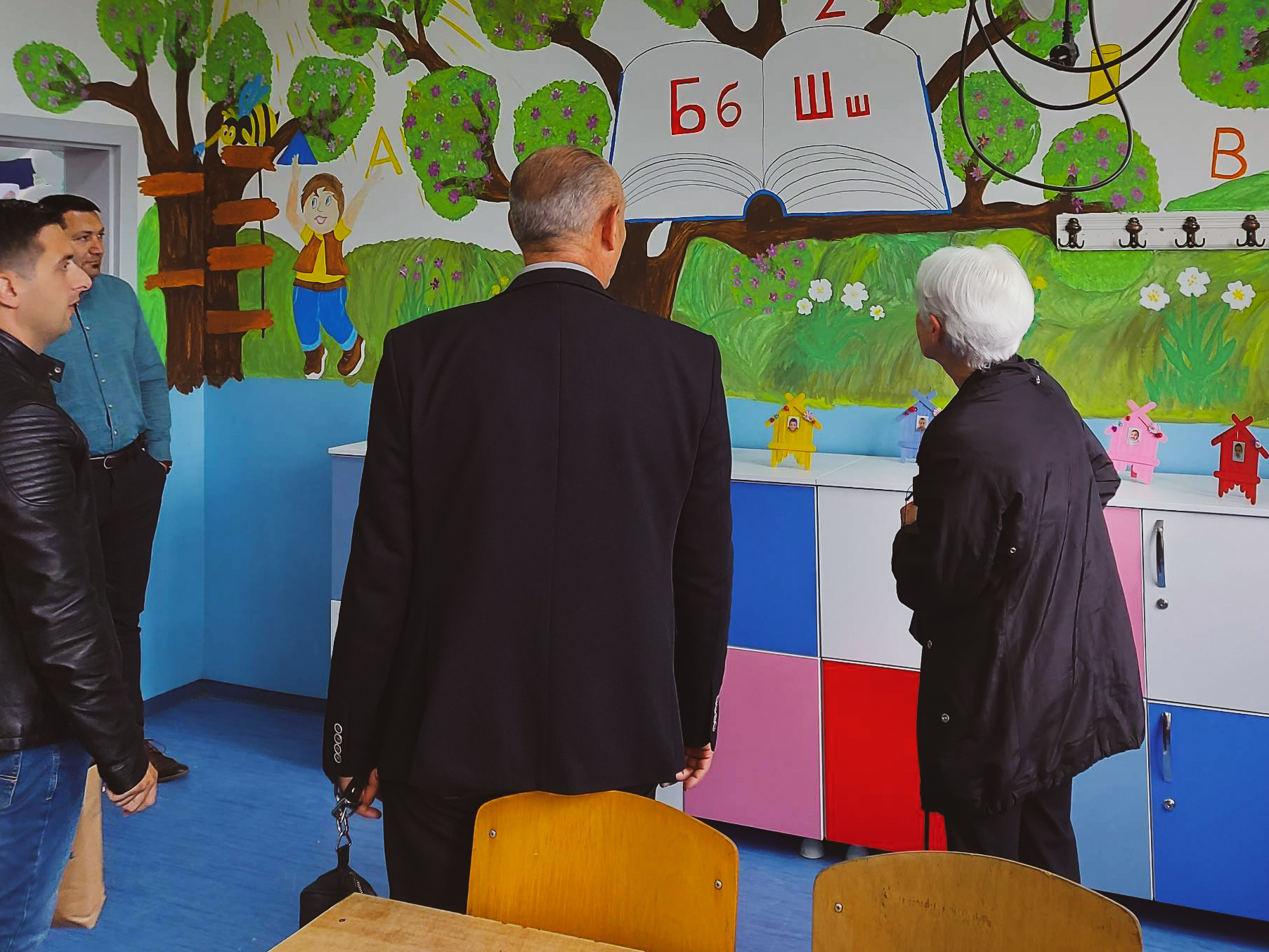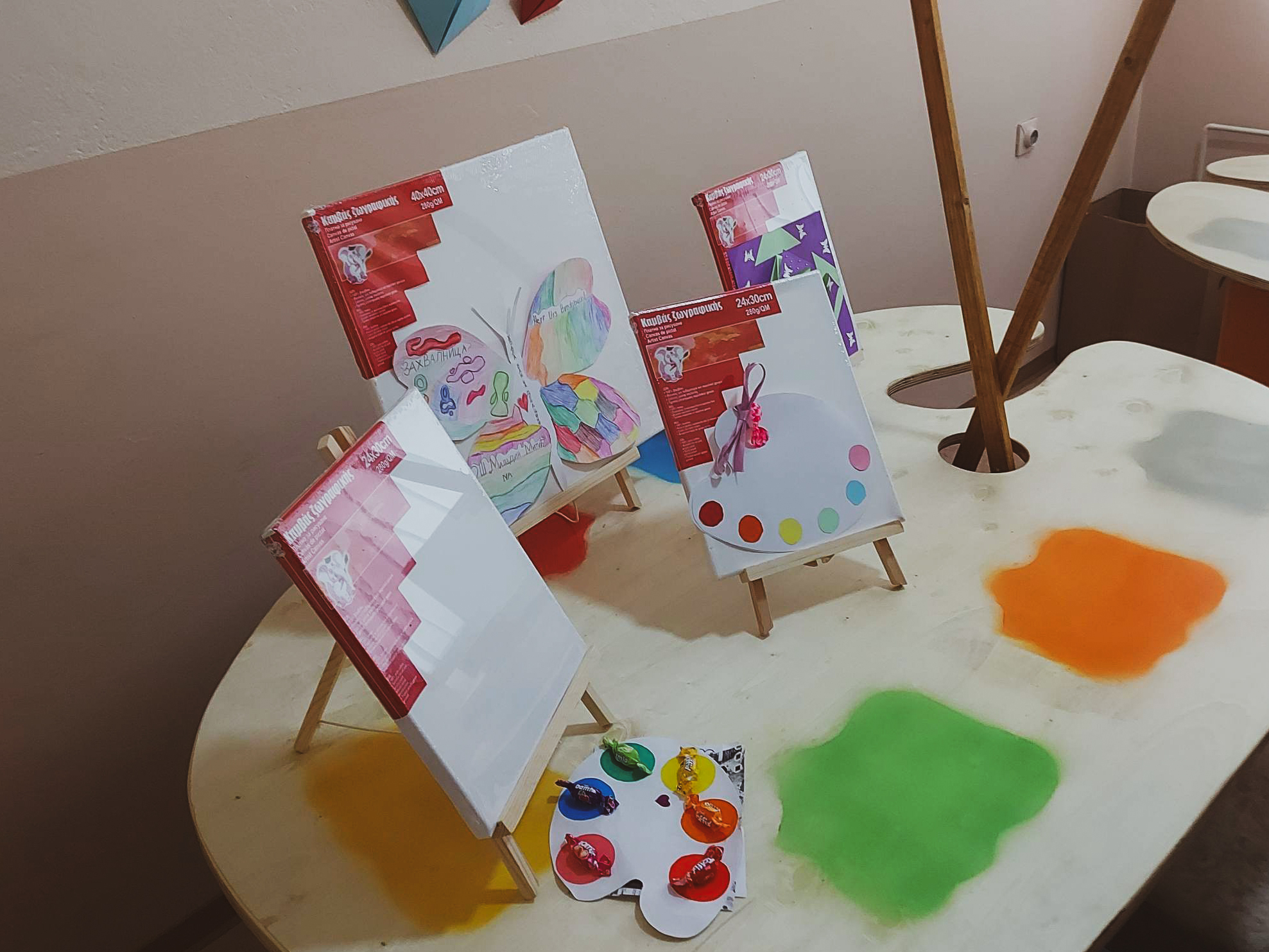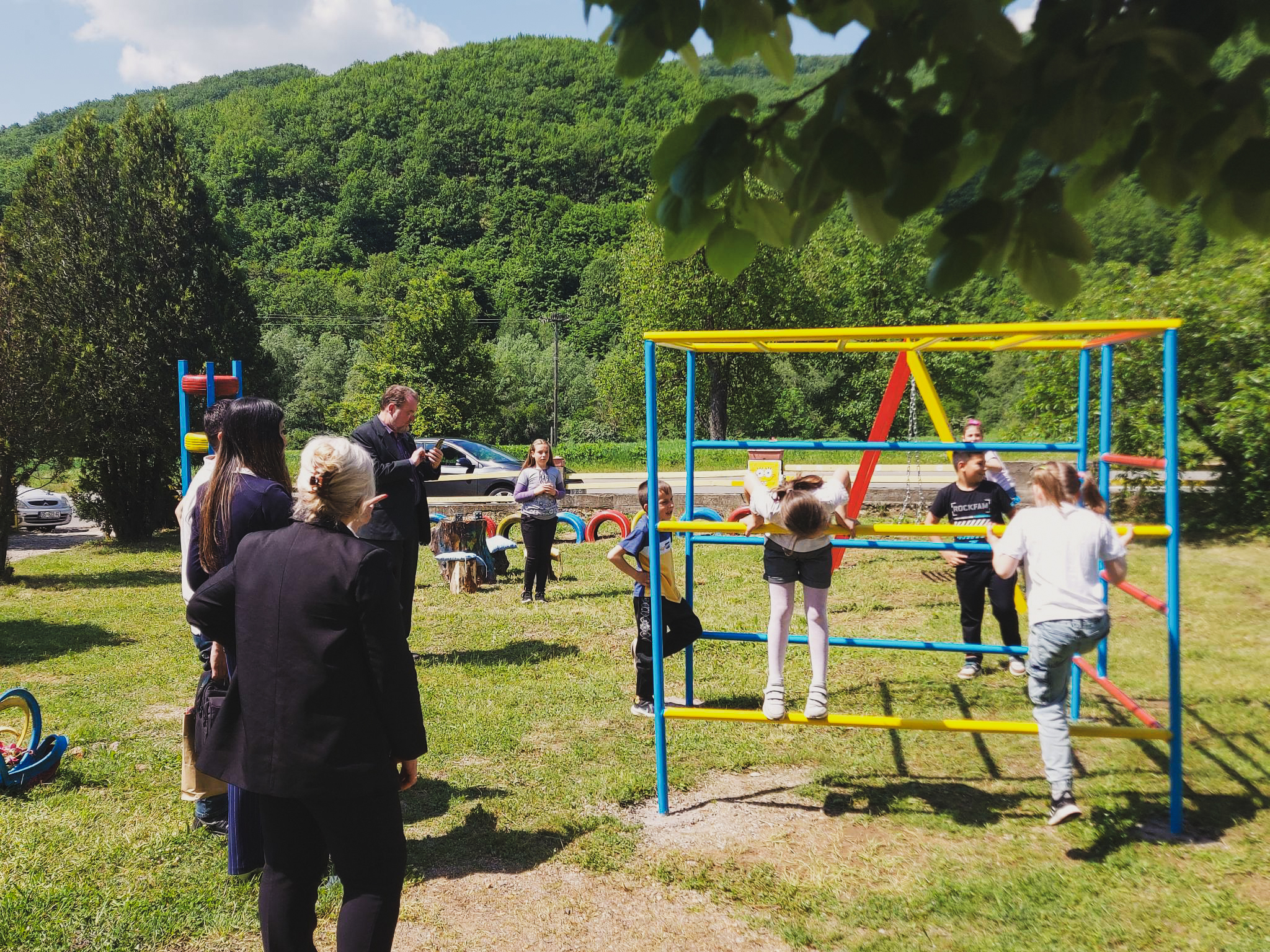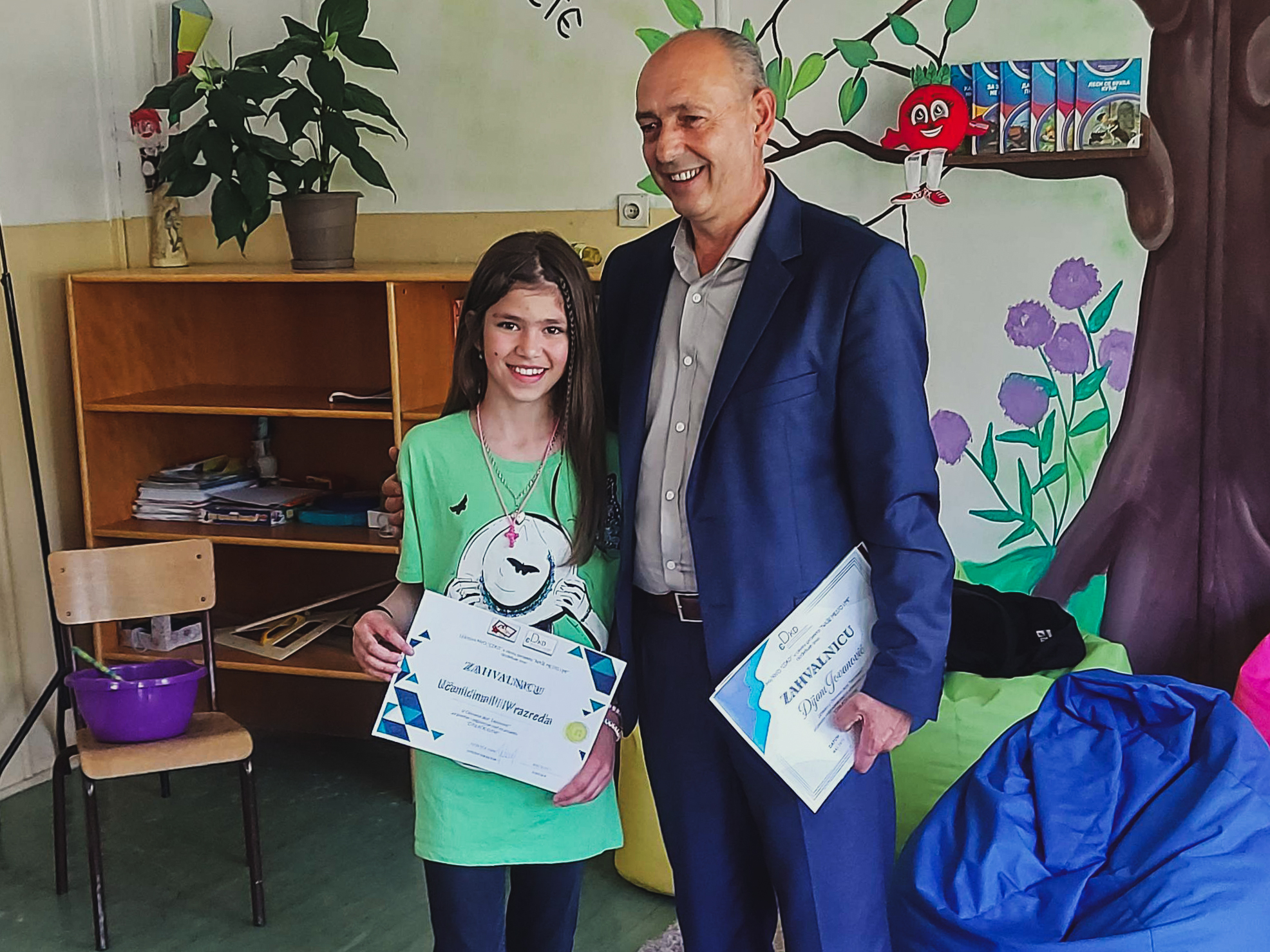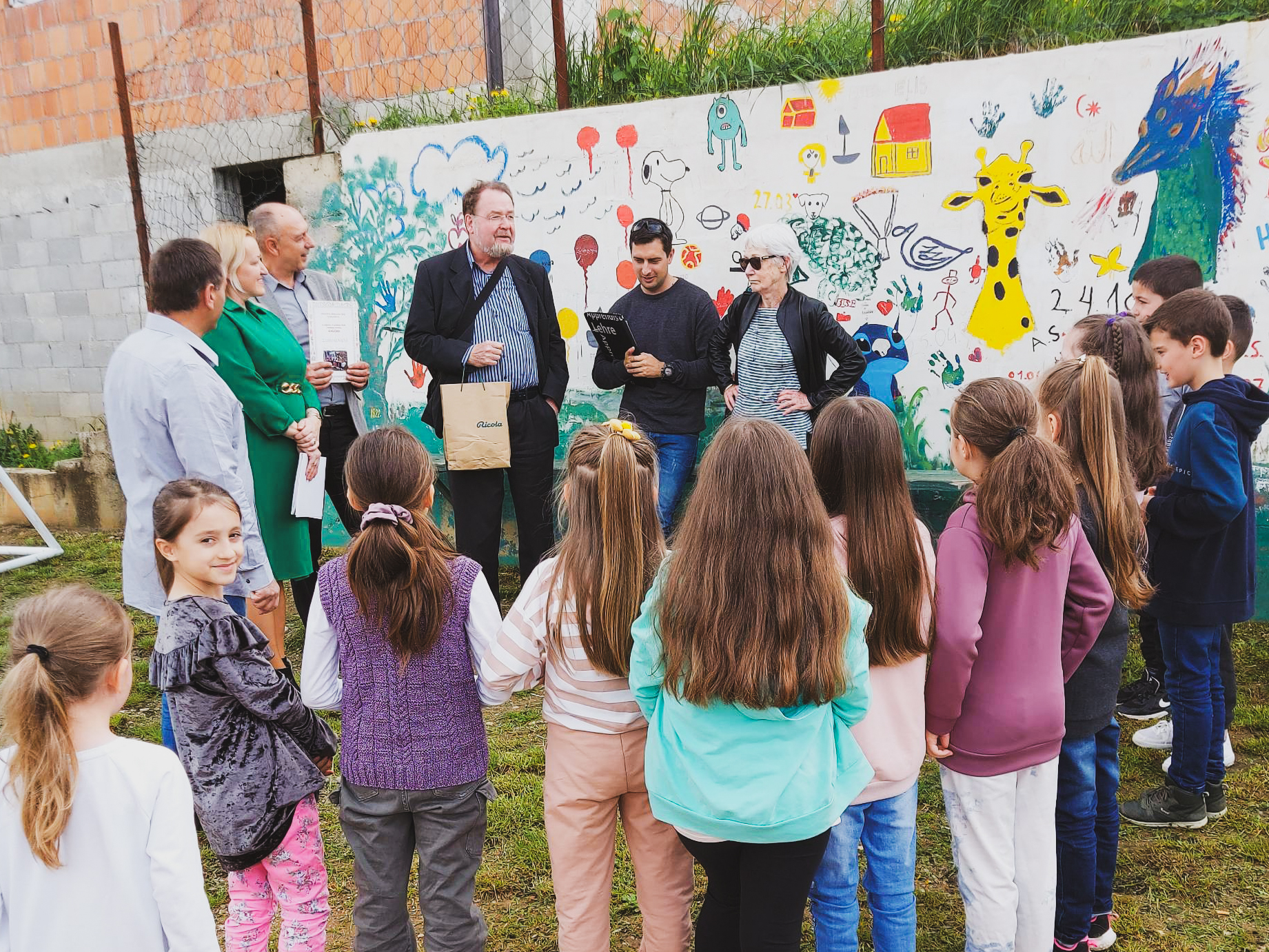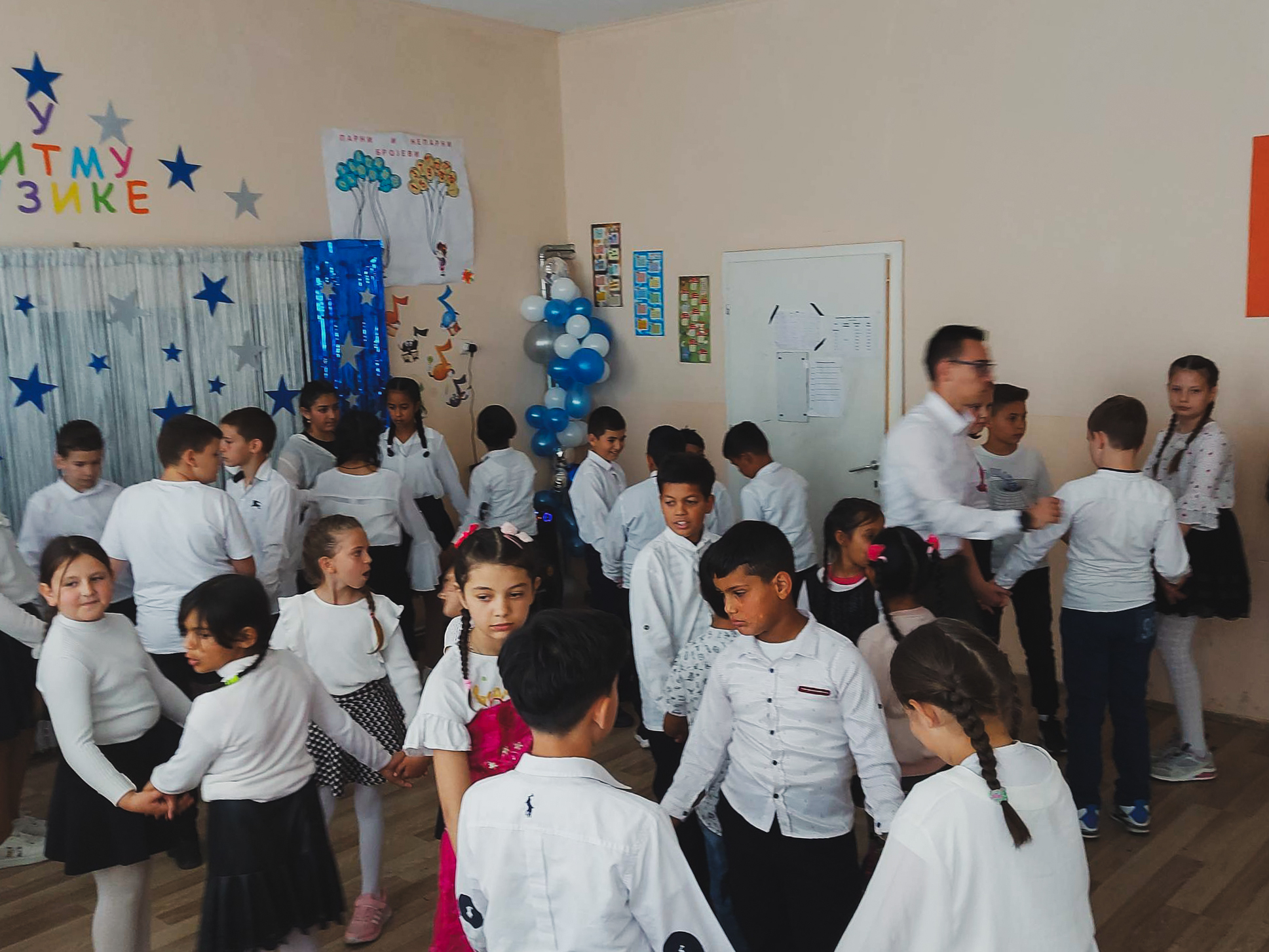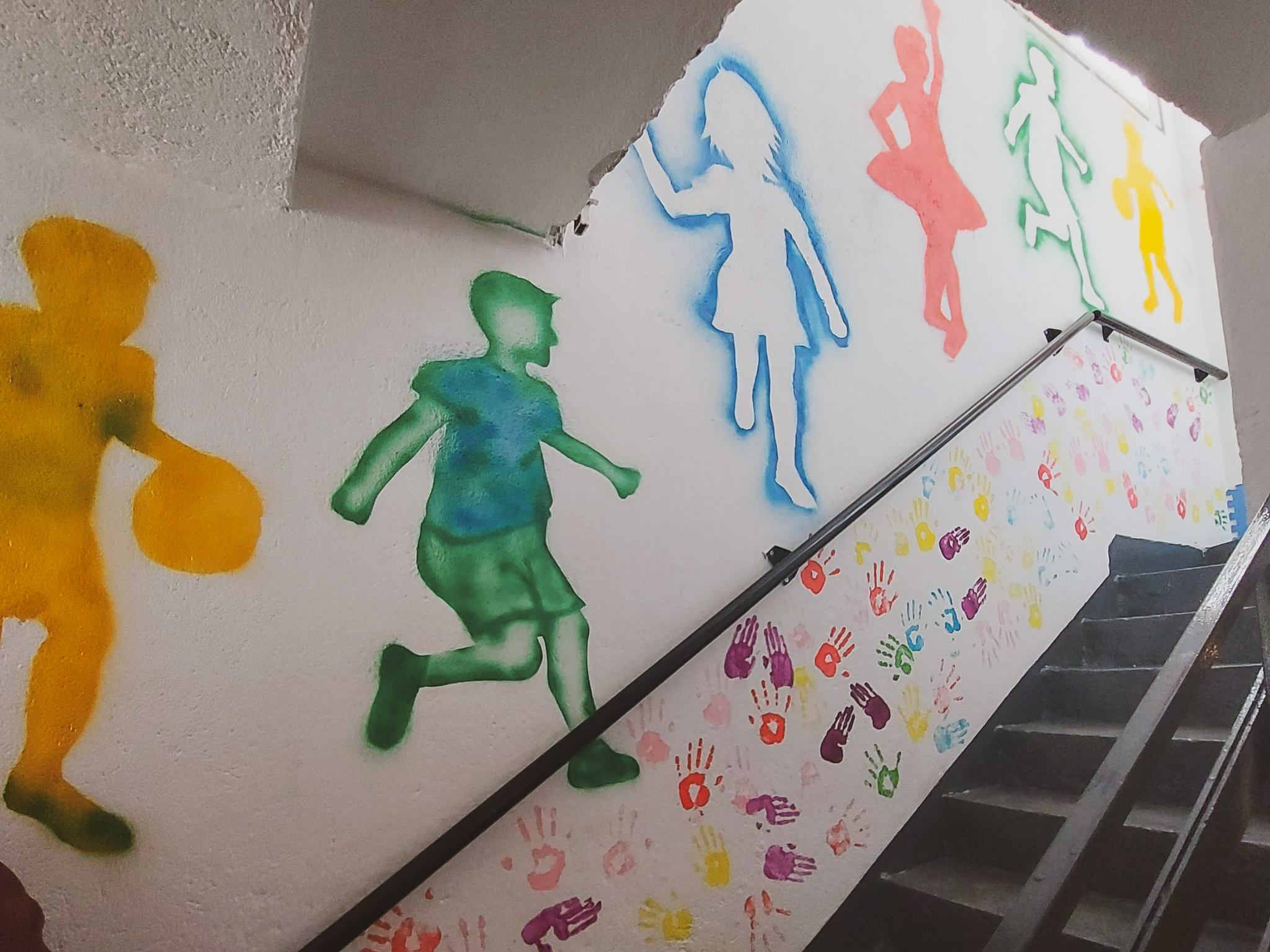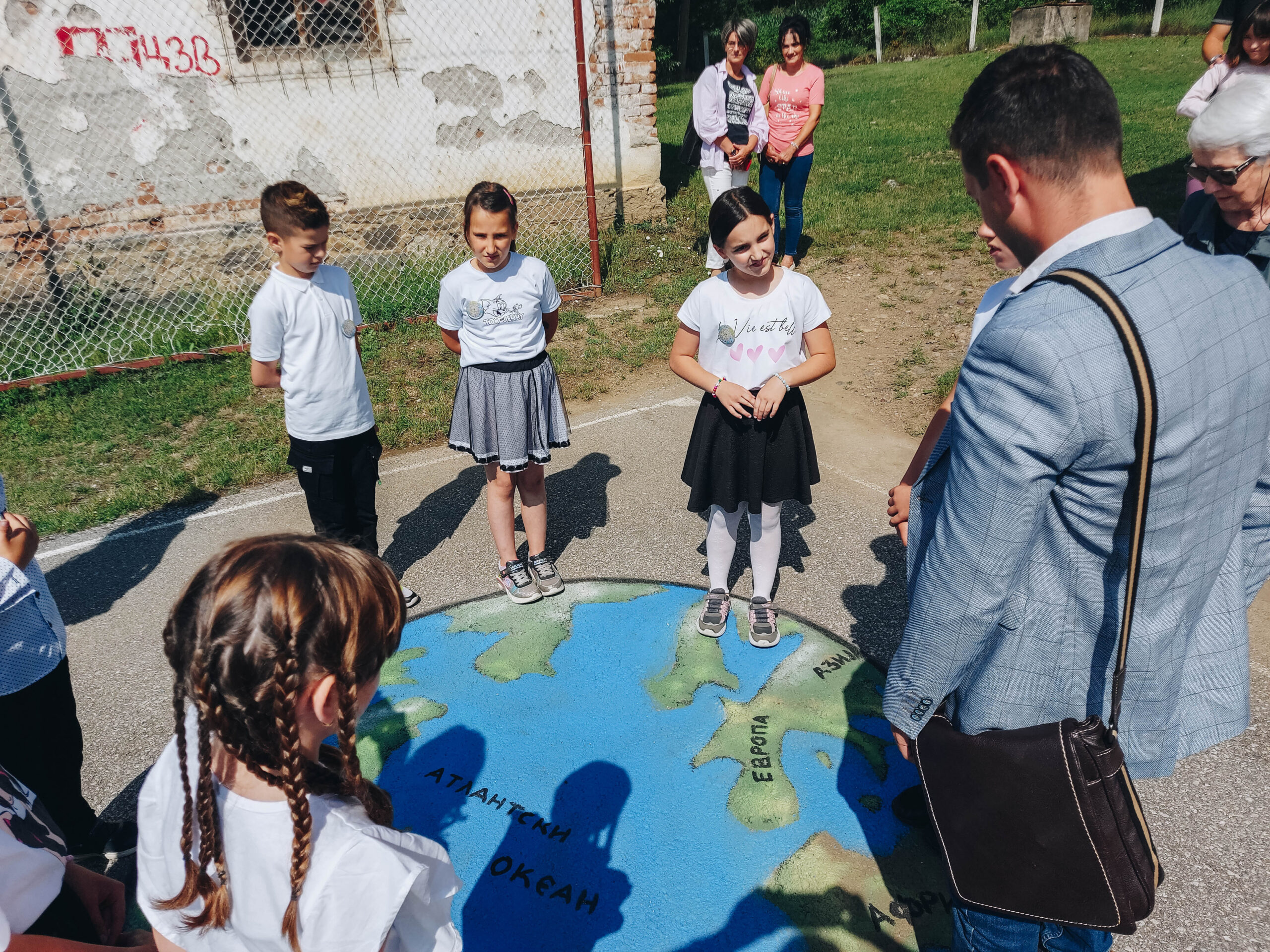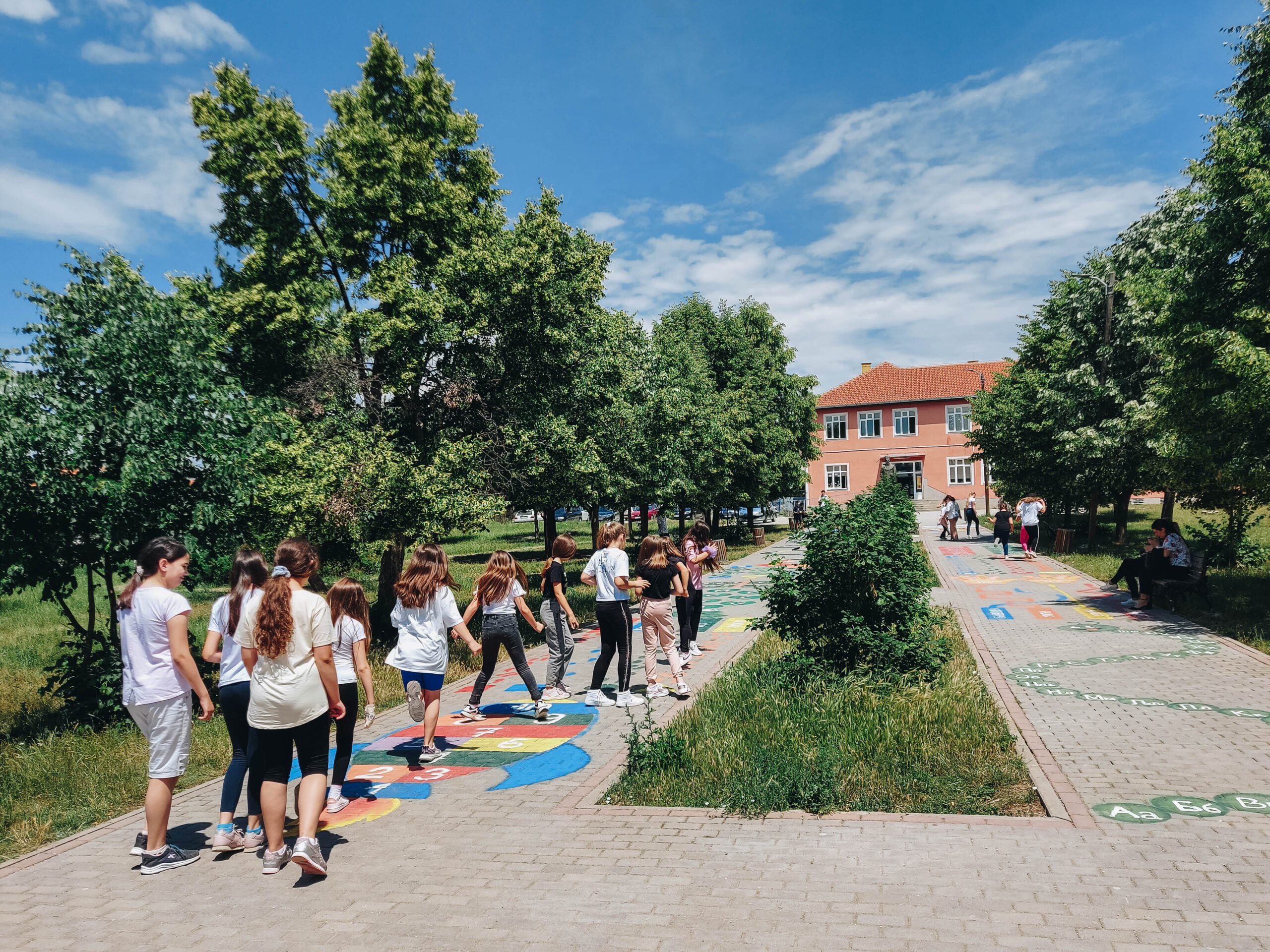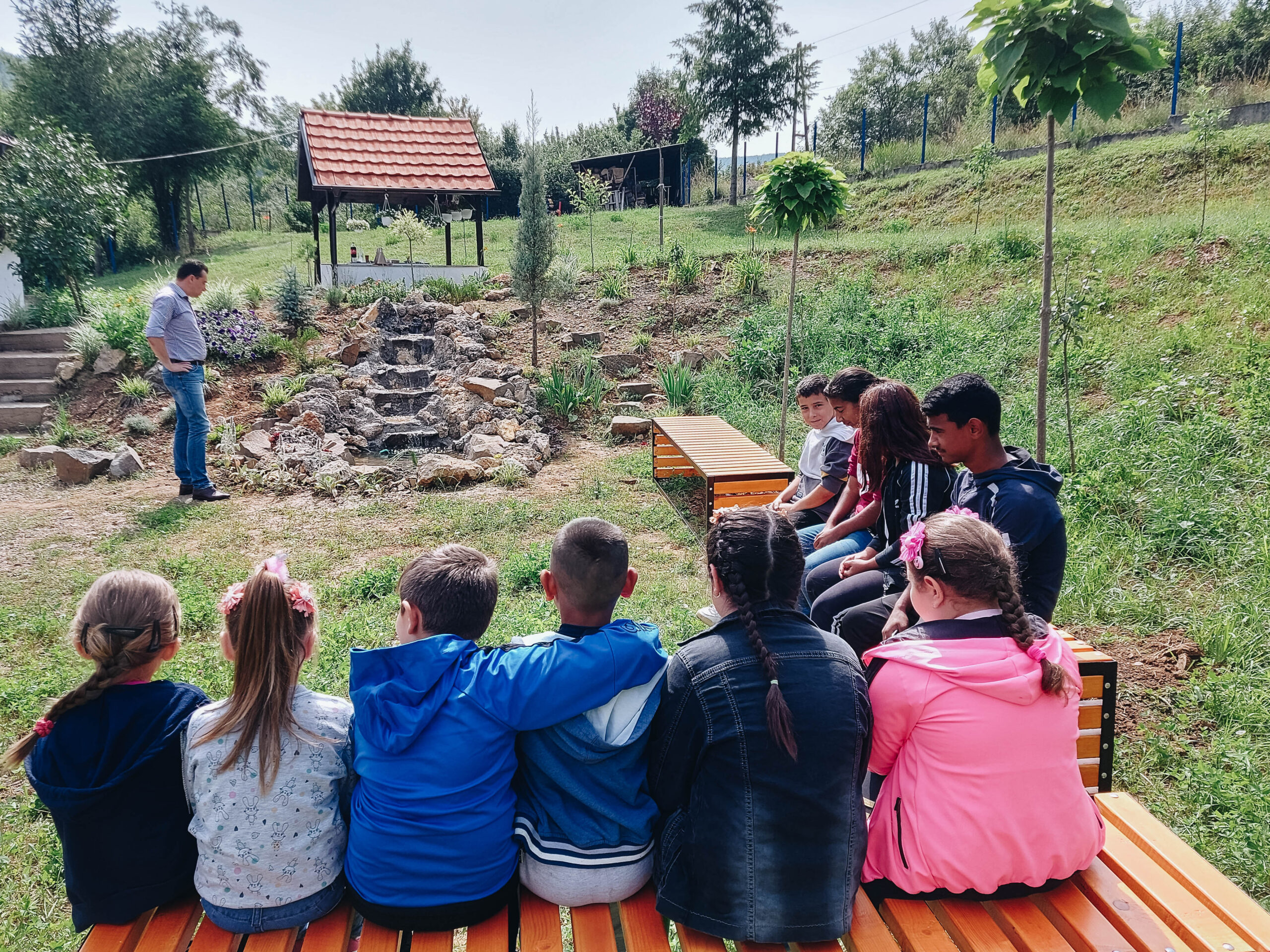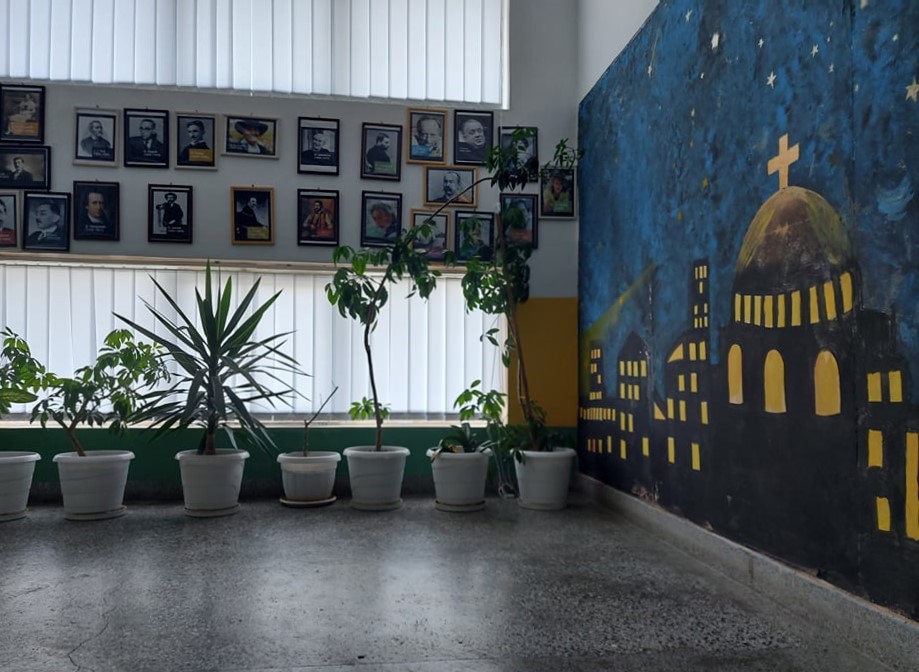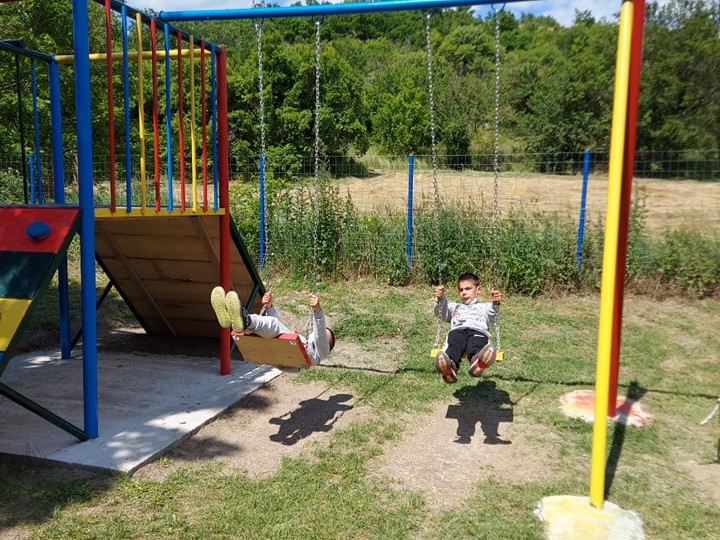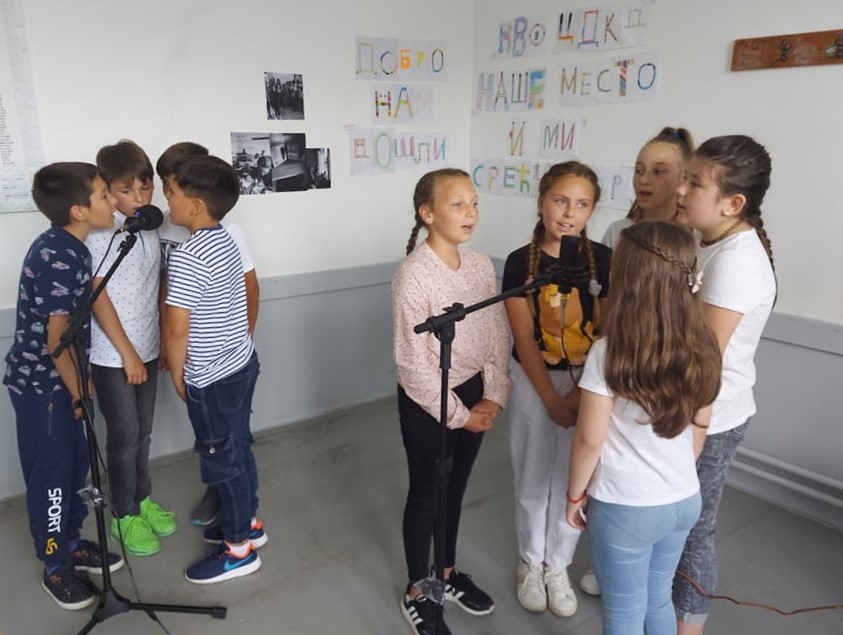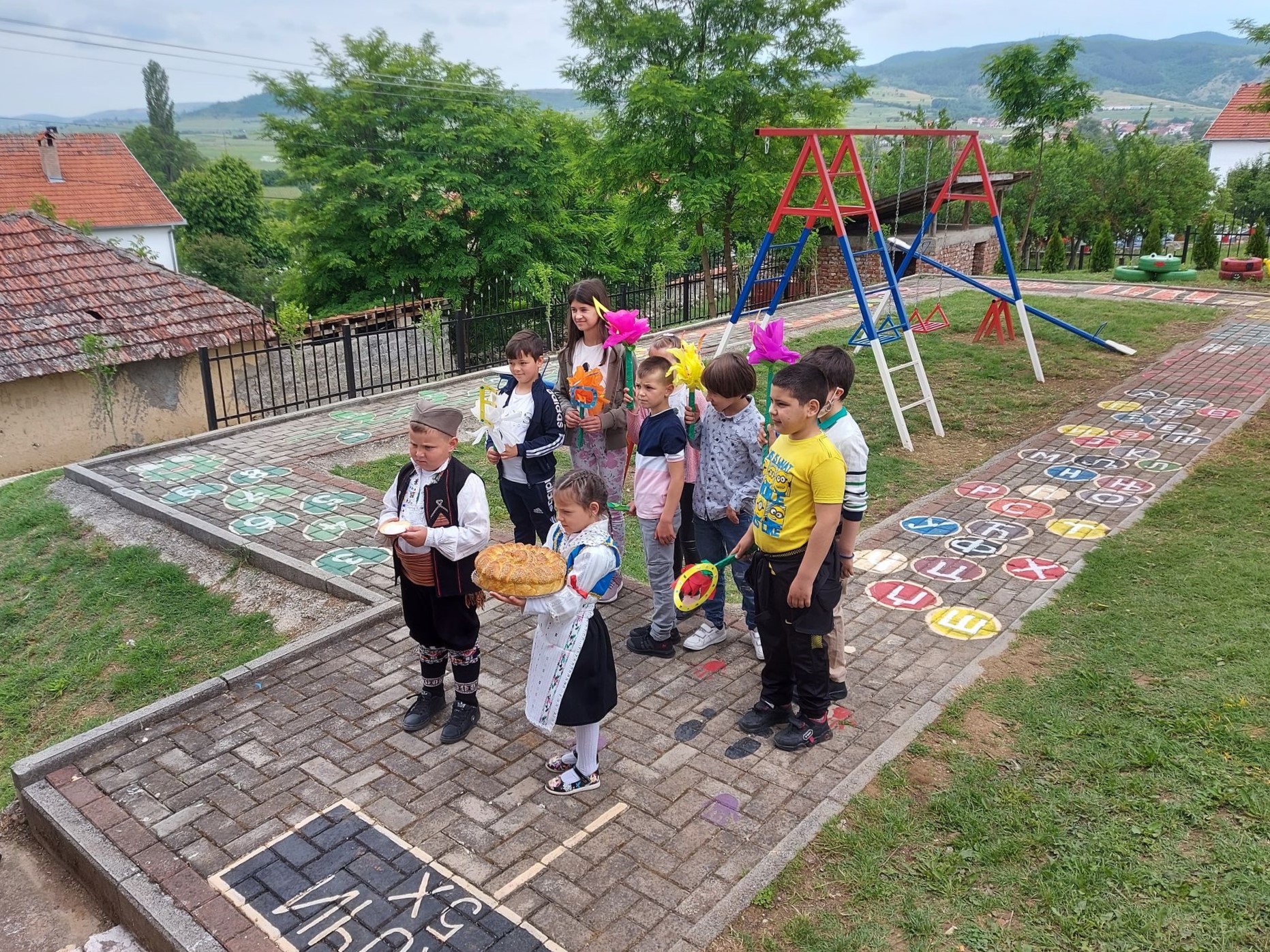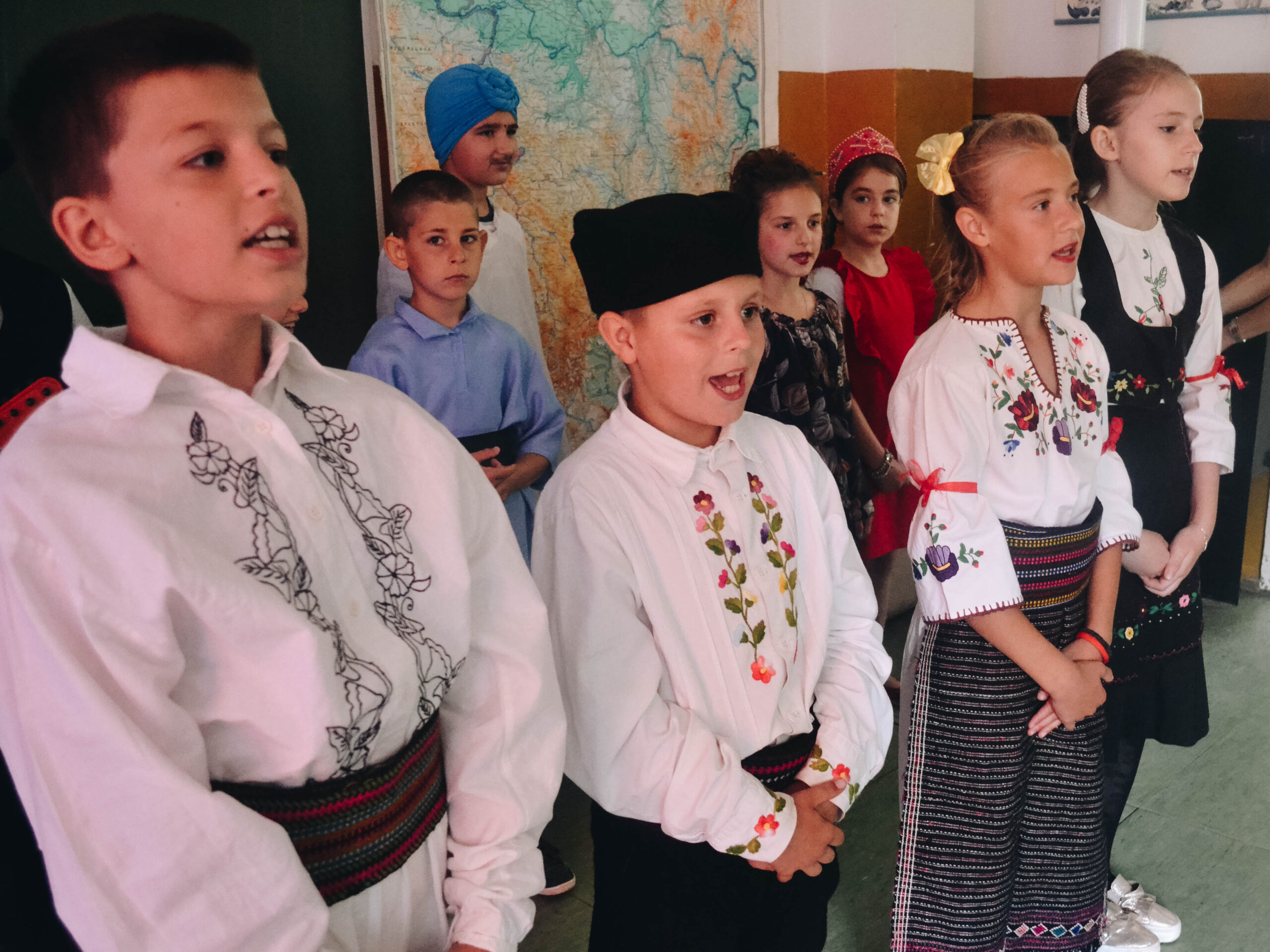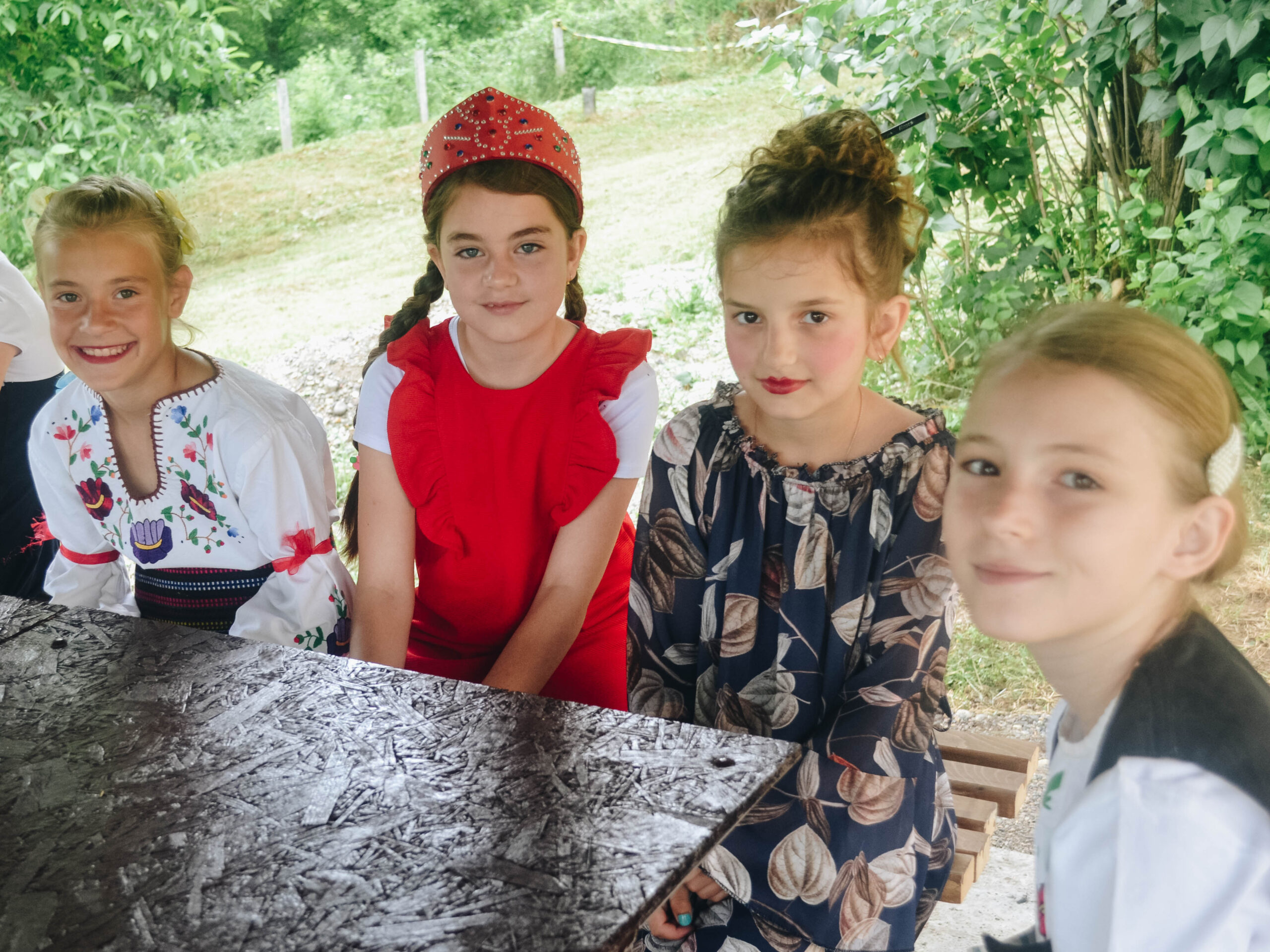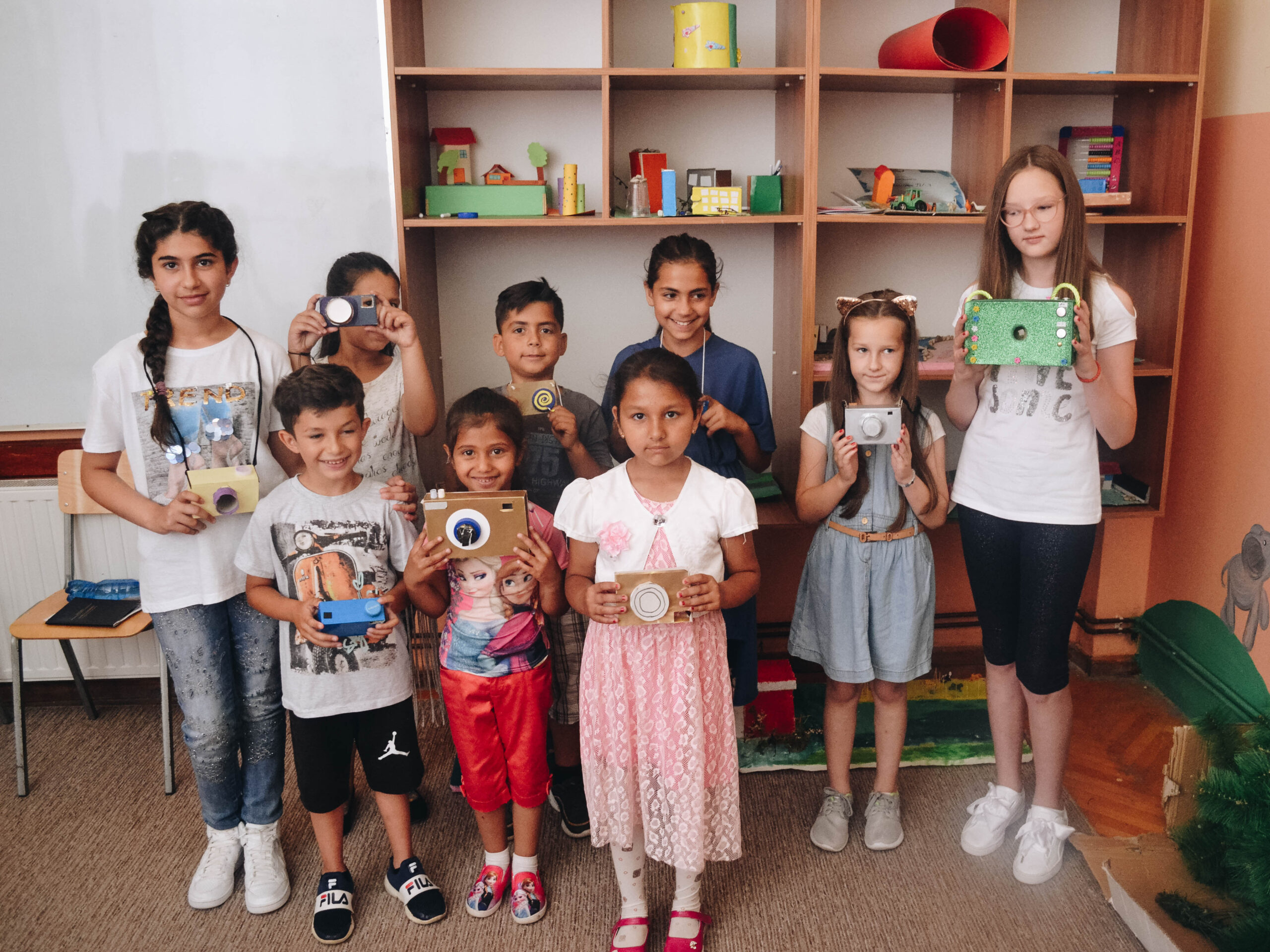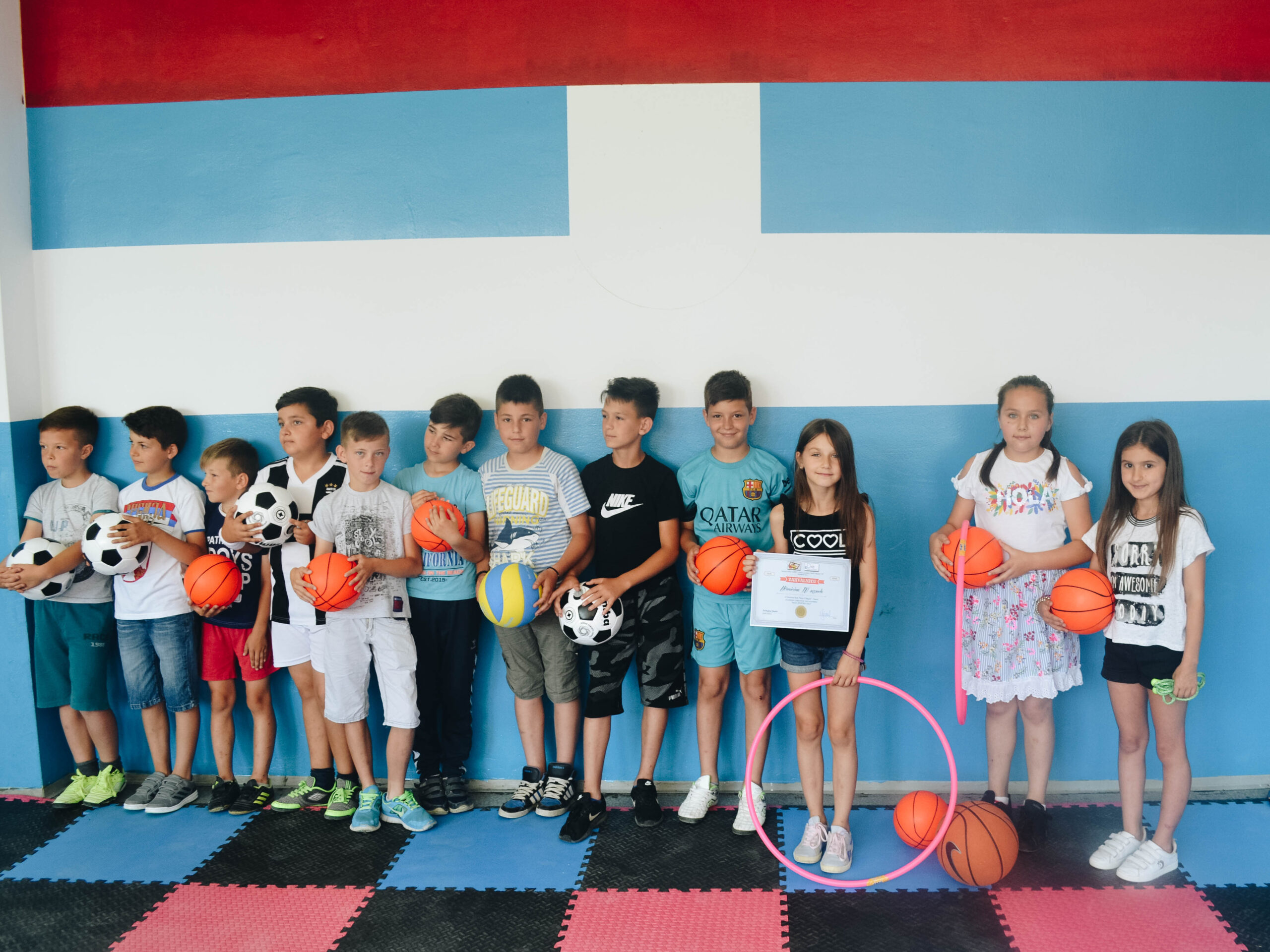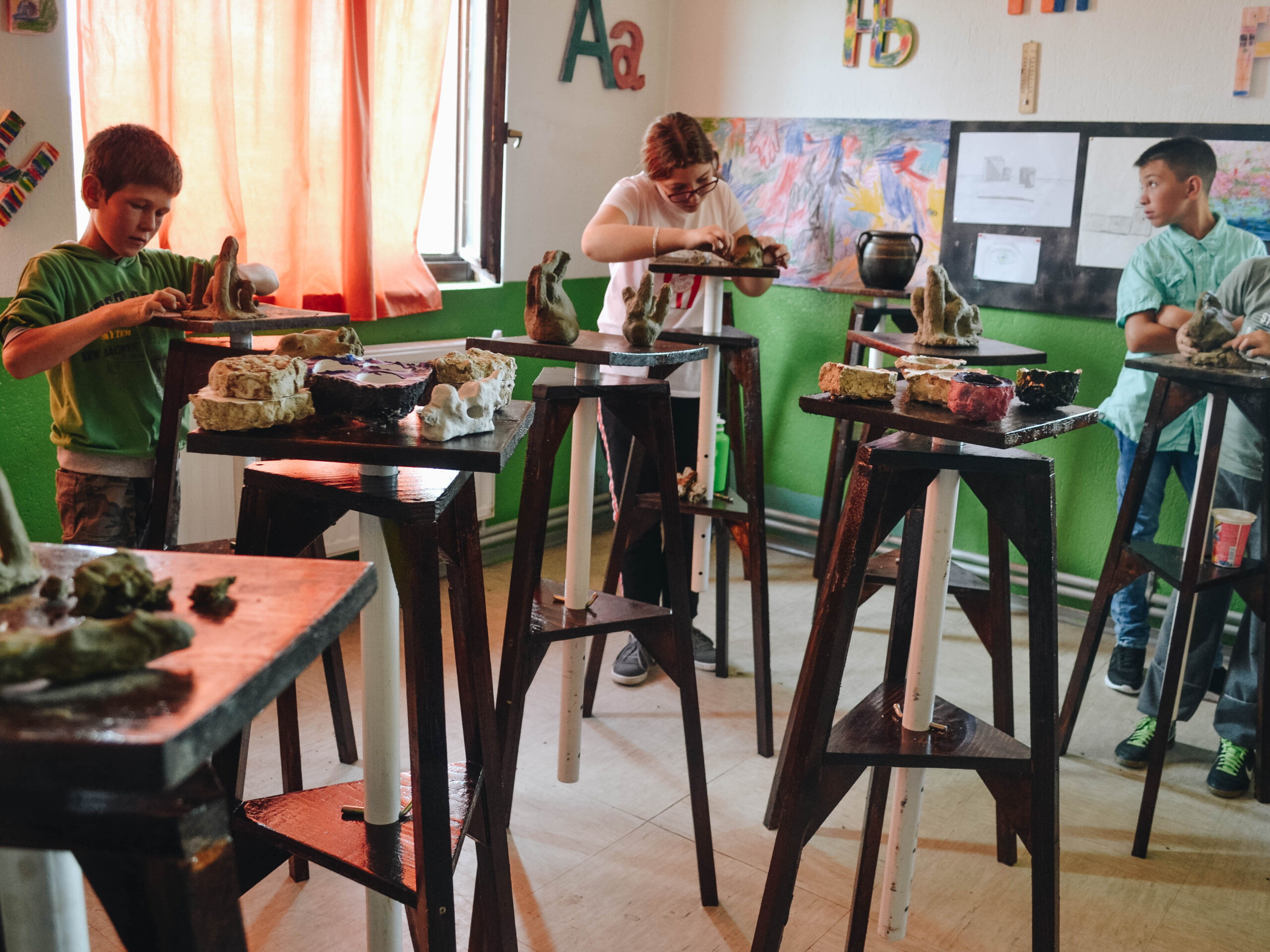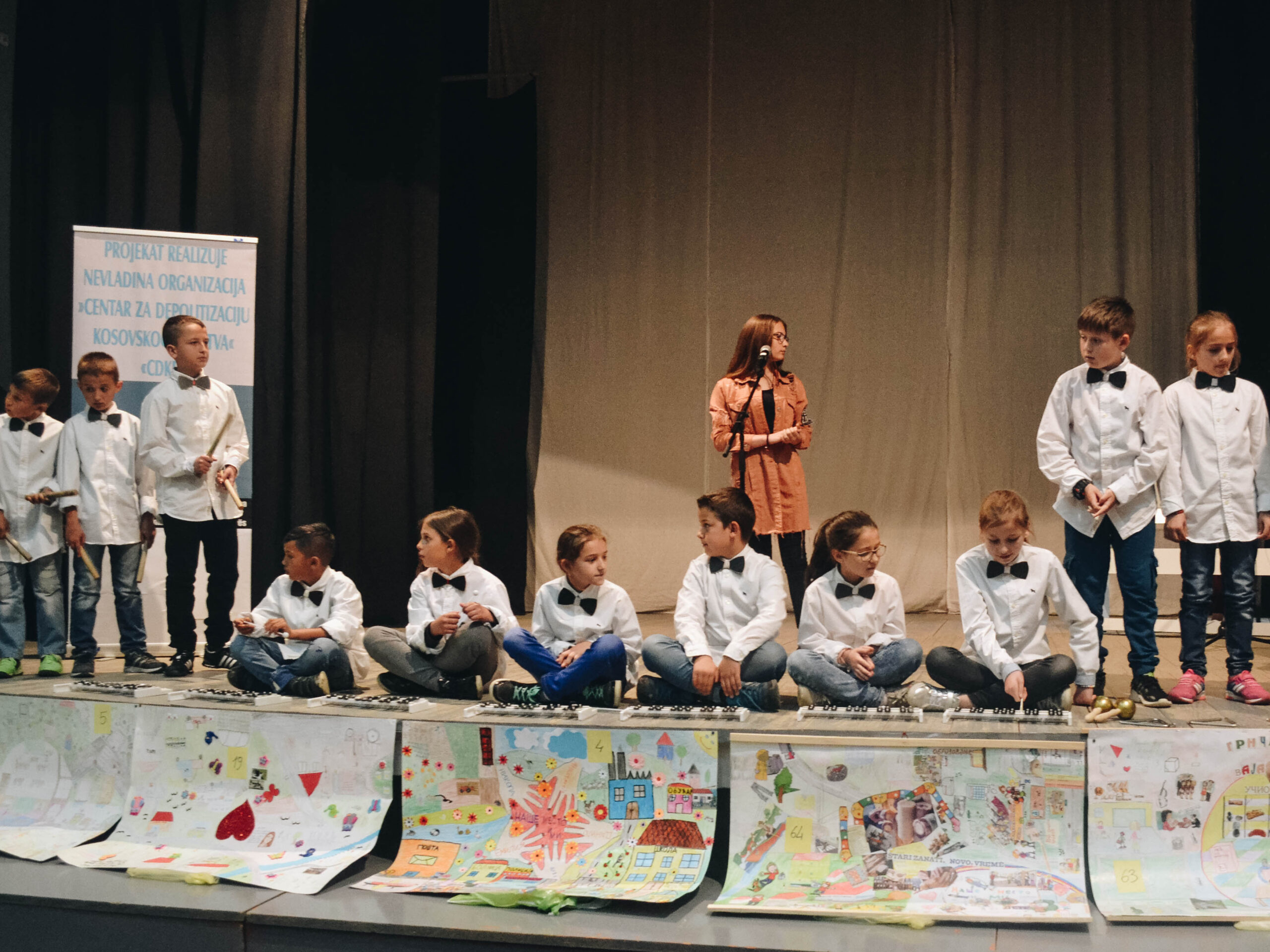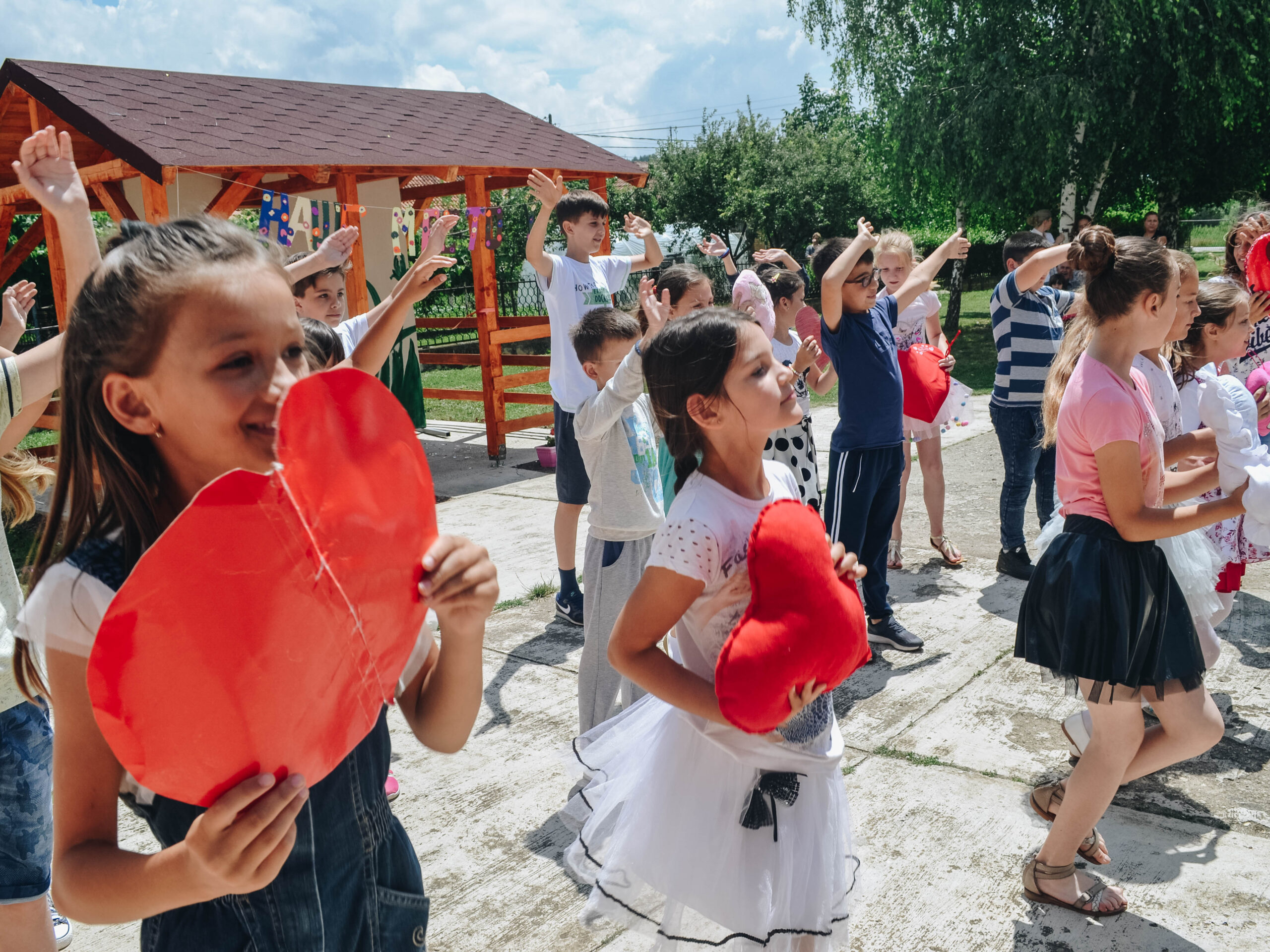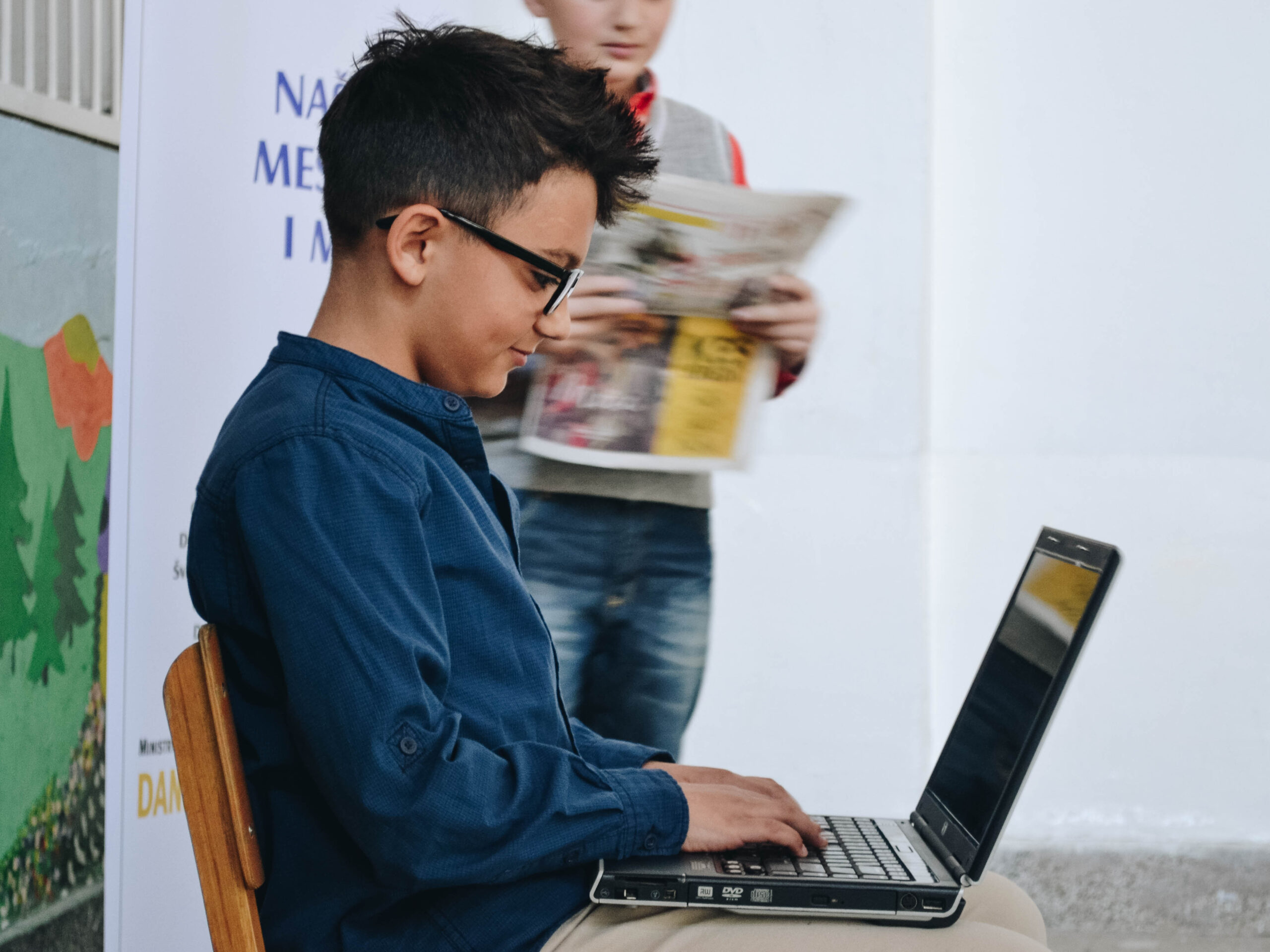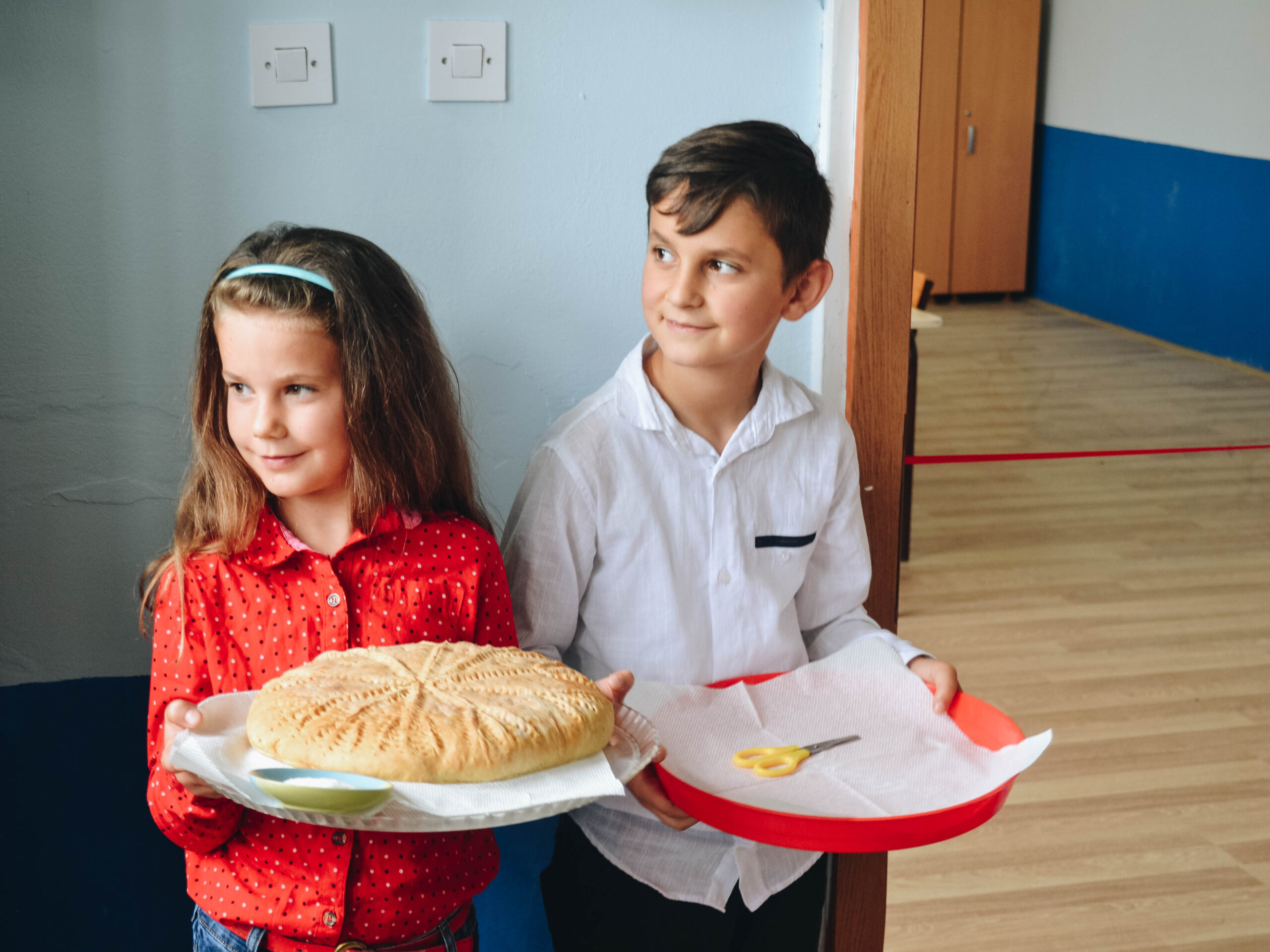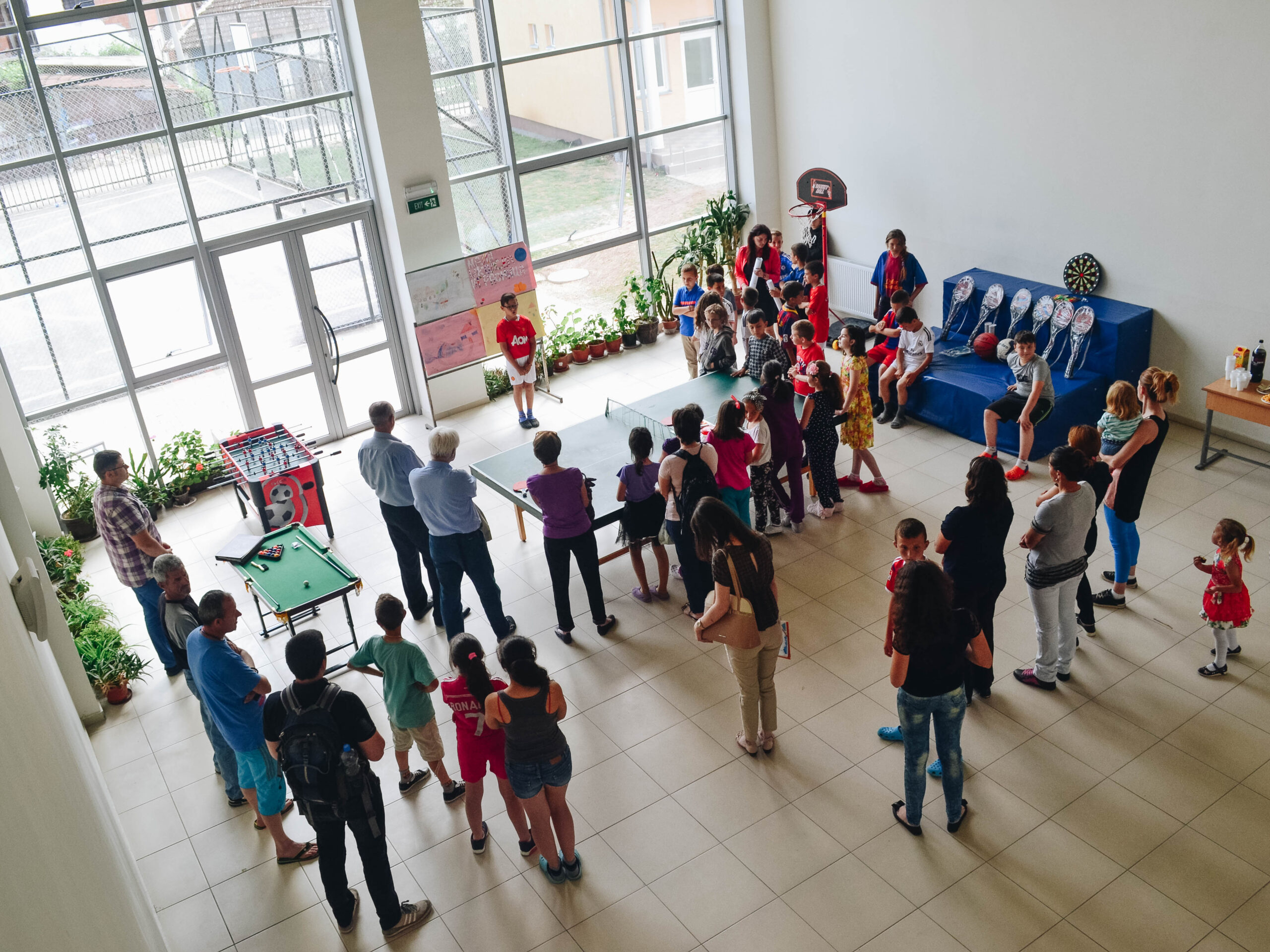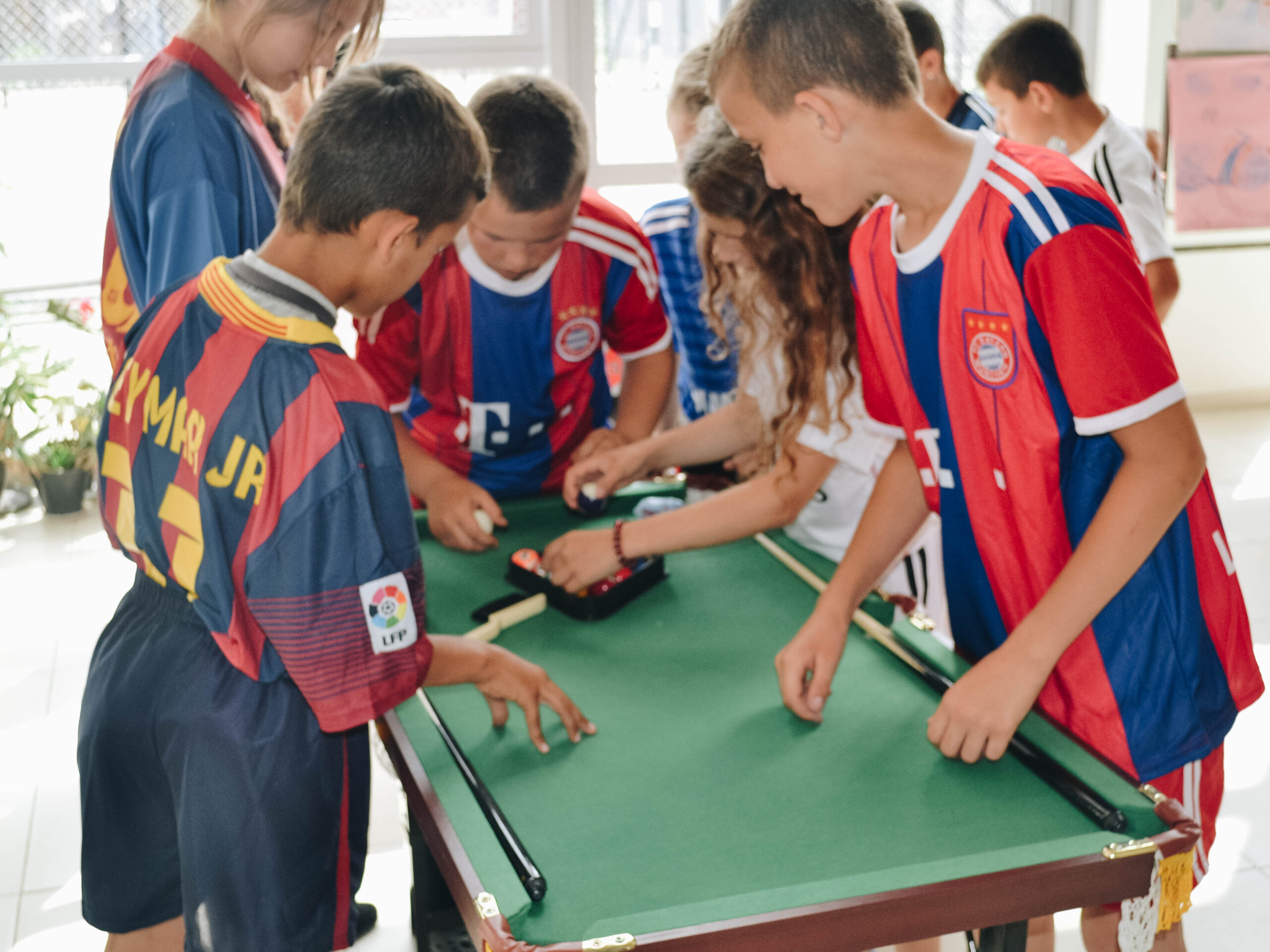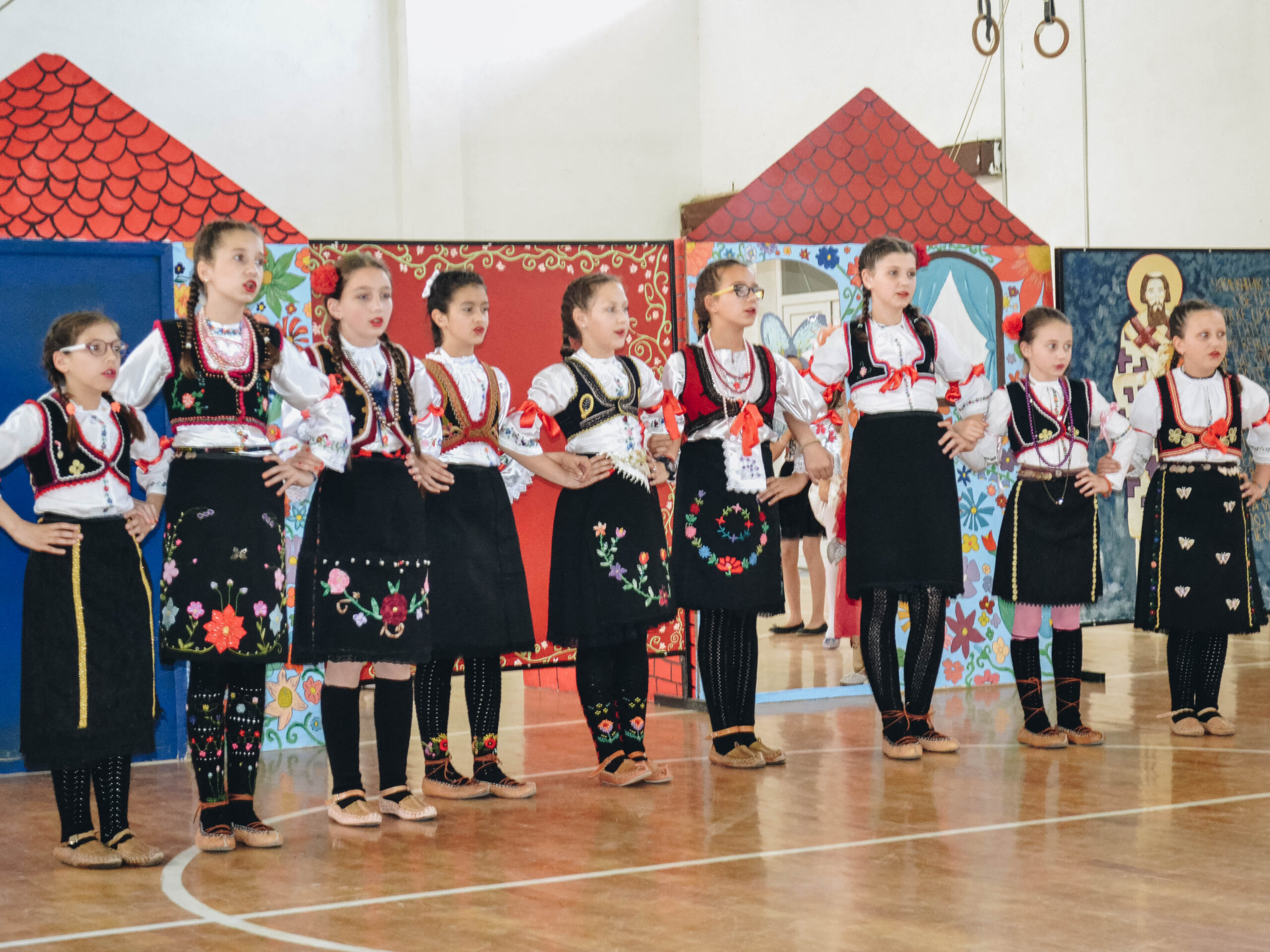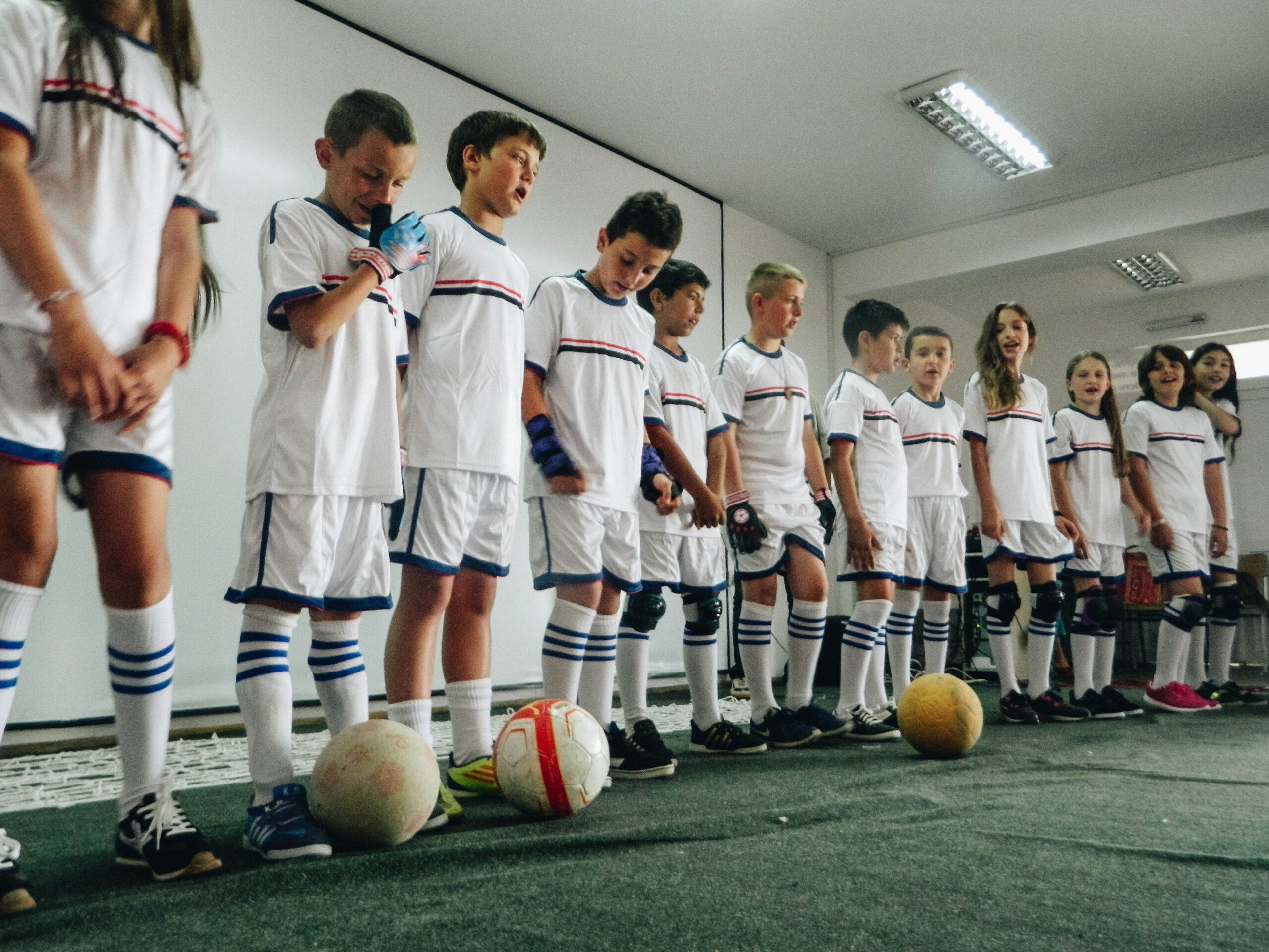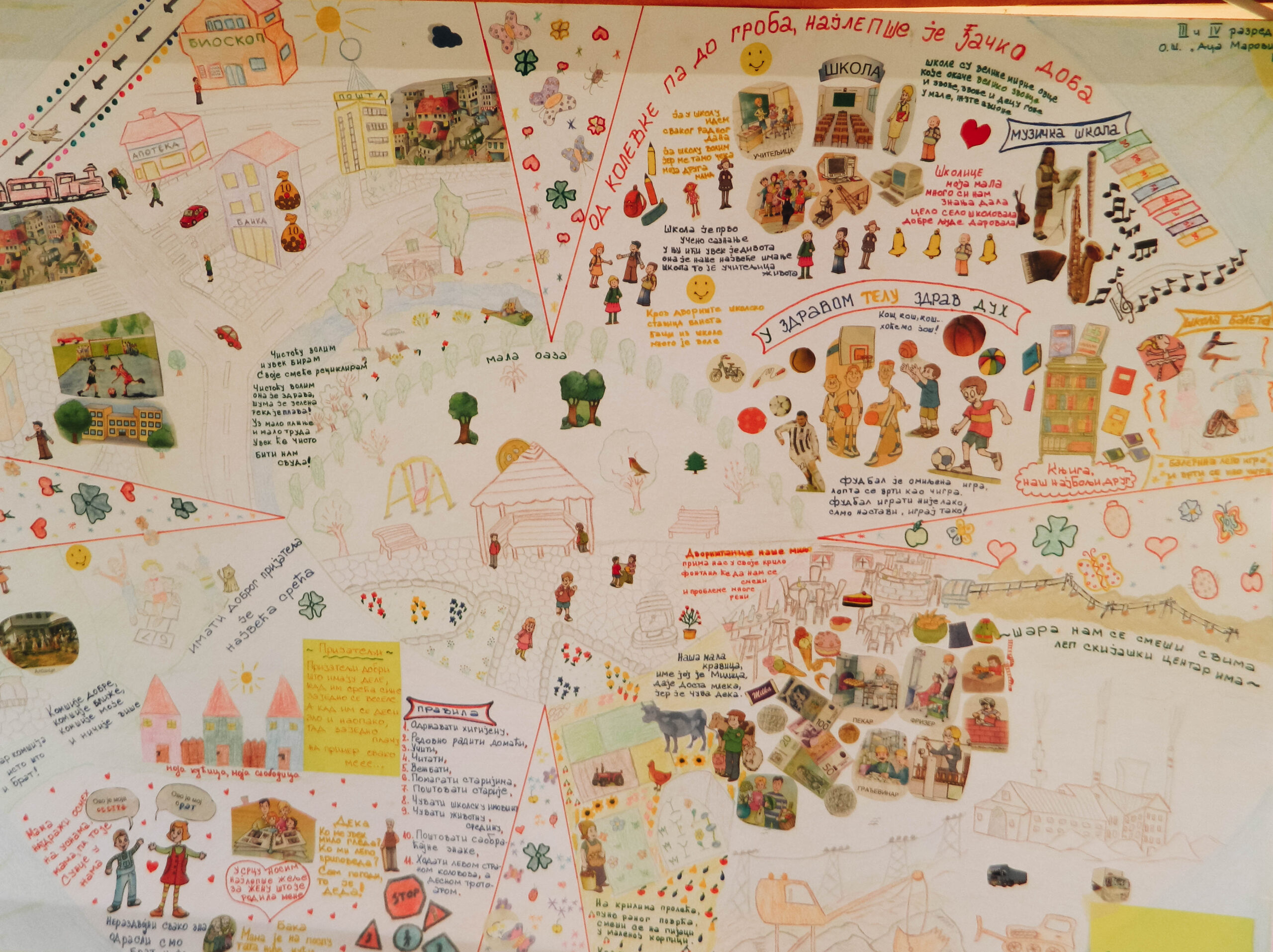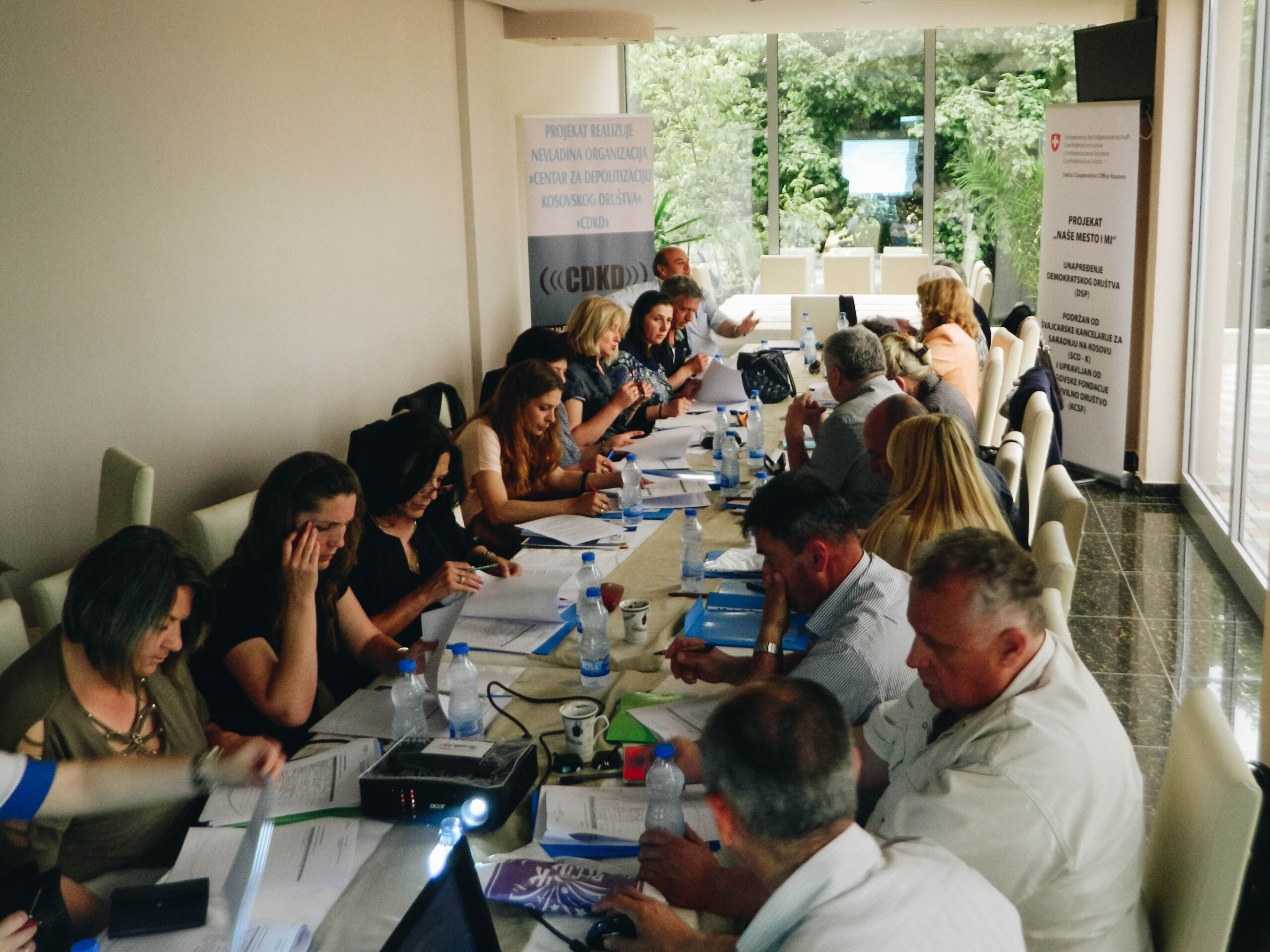project details
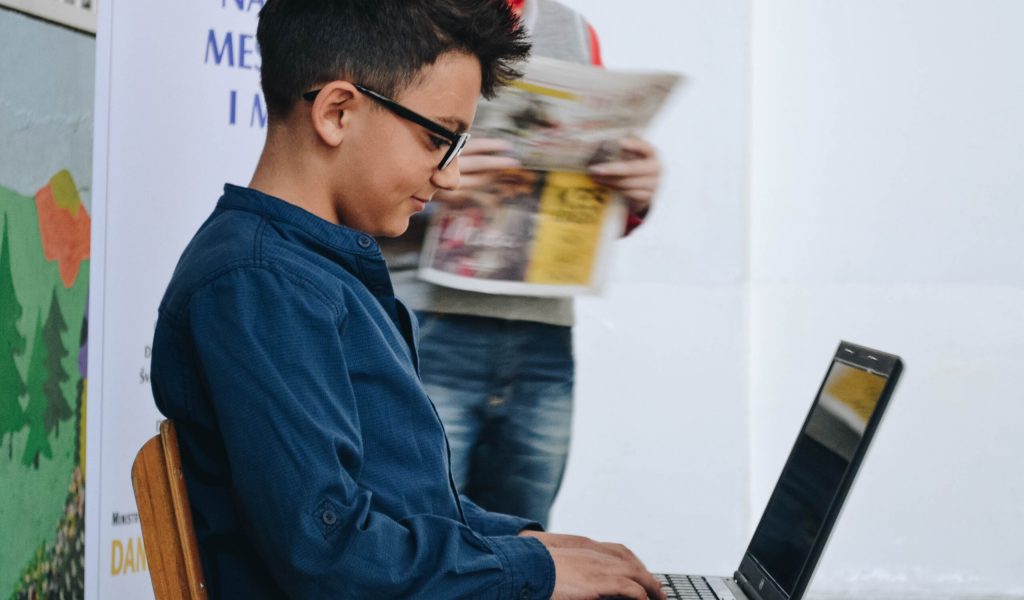
NAŠE MESTO I MI - OUR PLACE AND WE
About project
The project,, Our Place and We “ is a school project developed by the Pedagogical Institute of Zurich in collaboration with Mrs. Katherine Washinkton, who has been the greatest support from the very beginning until today. The project in Kosovo is implemented by the NGO “CDKD”. The project is managed by Nebojsa Simic with his expert team. The project is implemented in all ethnic communities in Kosovo, which, among other benefits, the project aims to strengthen cooperation between communities. The project aims to develop democracy among student communities of fourth-graders through various activities throughout the project process but is not limited to the original goal, because it also represents a competition among all classes involved in the project. Through project work, students also have the opportunity to win the award for their work in different ways and established criteria be supported for their project idea which (depending on the nature of the project) realize themselves and thus acquire different life skills, skills, responsibilities, planning and other positive knowledge that will benefit them in further education but also life. Also, by participating in the project, they create better educational conditions for themselves by proposing themselves change something in their school, classroom, place to make their quality of life better.
Project Overview here
The project Our Place and We started in 2012-13 in two municipalities in Kosovo (Kamenica and Ranilug). However, the project in Kosovo with Albanian schools began much earlier under the name Kosovision Contest as a joint initiative of KFOR, Paedagogische Hochschule Zürich (PHZH), and the Regional Education Office in Prizren. The basic idea was organizing a competition for all fifth graders for developing their mutual visions of the future of Kosovo in the form of a Project. From 2008-09 through 2010-11, PHZH implemented the project throughout Kosovo, together with the Kosovo Education Center (KEC) and the Ministry of Education, Science, and Technology (MEST). During this phase, the project received financial support from the SDC, the Lotto Fund of the Canton of Zurich, the Karl Popper Foundation in Zug, and other private donors. Phases of the “Kosovision Contest” were realized from 2011-12 to 2013-14 with KEC as the leading partner in implementation, PHZH in the role of “backstopping” (monitoring and executive control), and MEST as the main stakeholders. The phase was co-financed by SDC and MEST.
In principle, the Kosovision Project is a national competition in which all primary schools in Kosovo participate, more precisely the students of the fifth (in the Serbian school system of fourth grade). The number of participants is about 30,000 per year. Children deal with topics related to their environment: living together, education, sports, economy, infrastructure, environment. From a methodological point of view, this corresponds to the process of Education for Democratic Citizenship promoted by the Council of Europe.
Fifth-graders of all primary schools in Kosovo develop their visions of the future of Kosovo in the form of project posters and project ideas related to arranging their environment (classroom, school, yard, places). Each year 80-85 classes are awarded and receive prizes for the realization of planned projects. The activities require teacher training, school support and assistance, a poster exhibition, and the dissemination of activities. In seven years, the project has reached nearly 200,000 children in Albanian schools.
Although the Kosovision Contest is a multi-ethnic project and open to all ethnic communities, for well-known political reasons, it has not been possible to reach Serbian schools. And that is why the “Our Place and We” project was launched in March 2013 with the idea of expanding the “Kosovision Contest” to Serbian schools operating in Kosovo. It started as a small-scale project and was initiated by the Swiss Cooperation Office in the region of Kamenica and Ranilug in eastern Kosovo in the region of Gnjlane. In 2013, from March to June, only 12 classes from the Gnjilane region participated in the project where the program was slightly adapted to the local context. Partners in the implementation are the Kosovo Education Center (KEC) and the Center for Depoliticization of Kosovo Society (CDKD), a local Serbian organization based in Kamenica. Support, where needed, was provided by PHZH (Katherine Washington).
In this school year, 3 classes were awarded with school projects.
In the academic school year 2013-2014, the project became a broader competition for fourth graders of Serbian schools in Kosovo, although not all are included yet. Eighty-four classes from 11 municipalities (Štrpce, Obilić, Ranilug, Kosovo Polje, Gračanica, Lipljan, Novo Brdo, Klokot, Parteš, Gjilane, Kamenica) agreed to participate in the competition, but this was not the case with the municipalities in northern Kosovo and Serbian schools in the municipalities of Dragaš and Orahovac. In this school year, 15 classes were awarded school projects.
In the academic school years (2015-16-17-18), the project Our Place and We involved all Serbian schools in Kosovo. In each of the mentioned school years, we had 140 to 150 classes involved in the project. During these three years of the project, 450 teachers of the fourth-grades were trained and we had about 6,000 students working on this project. Likewise, we financially supported over 80 school projects. It was of great importance to every school being involved, especially as students made suggestions for projects and realized them.
In the academic school year 2018-19, we did not have a single official donor. We only continued working along with the efforts of the respected Mrs. Katherina Washington because she provided funds where we supported 12 school projects and the team of non-governmental organization CDKD volunteered and we completed the project without compensation but with a small number of classes involved even though all schools, included in previous years were interested in.
In 2019-20 , we planned to continue with the project in agreement with Ms. Katherina Washington invited all schools to get involved in the project. All schools expressed interest, but due to a lack of funding, we could not continue working on the project. Although non-governmental organization CDKD applied to many donors in Kosovo, we did not find understanding and importance of the project and did not receive support for the continuation of the project. Taking into consideration such a bad situation regarding the support and financial support from the institution, CDKD management, and Mrs.Katherina Washington as well as Mr. Urs Brechbühl agreed to continue working on the project Our place and We in the academic 2020-21 year. A plan of ours is to work on the project until 2023.
Funding for the project will be provided through a public call to small donors and to other friends and citizens of Switzerland to continue the project. The project was launched with 94 grades and covers all communities living in Kosovo, but at a later stage, we will have joint projects among communities and thus establish good cooperation of all communities in Kosovo.
The project Our Place and We is significant for many reasons:
There is a great deal of interest among the student communities of all ethnic communities living in Kosovo;
It is especially important for students who through project activities acquire many life skills that will significantly help them both through further education and in life.
Since there is not enough funding for schools for their various needs, the project Our Place and We also helps them to solve many issues of school needs, especially the needs of children and better conditions for their schooling.
Over time the project must establish cooperation between all communities that share a common space, which is a prerequisite for establishing good relations and building a mutual future.
vCreating opportunities for such funding ensures security and support for all the above importance, especially when we do not have the financial support of local donors and institutions in Kosovo.
OBJECTIVES AND ACTIVITIES OF THE PROJECT "OUR PLACE AND WE"
The target group of the project is fourth-fifth grade teachers in schools of all communities in Kosovo. Their number is about 94 at this stage. They are the connection of the project with its users, children of the fourth-fifth grade (from 10 to 11). Indirect beneficiaries are also the families of the children participating in the project, the villages in the municipalities, and, in the long run, all the communities in the entire Kosovo society. The children involved in the workshops and the project will be aware of the activities and ideas they promote and all communities in Kosovo will benefit from the project in the long run as children will participate in “Our Place and We” and learn how to participate in the process of making mutual decisions.
The broader goal of the project is to develop a culture of democratic civil society among Kosovo- Serb children’s communities through the education system.
The specific objective of the project is to increase the opportunities and skills of targeted school children to influence the real-life communities responsibly.
The expected results of this project are:
1. Project ideas developed in fourth-fifth grades in schools of all communities living in Kosovo.
2. Selection of projects developed by the fourth-fifth grades in all schools that are included in the project during this academic year.
1. Development of project ideas
Design and production of materials for schools, including the Teacher’s Manual, worksheets, information leaflets, and children’s notebooks for the project in Kosovo the Institute for International Projects in Education of Zurich, the University of Teacher Education with authors: Katherina Washington and Rolf Gollob in cooperation with Thomas Fluckiger, Katharina Frei, Eva- Maria Holzer, Thomas Kalin, Georg Pfarrwaller and Mahir Mustafa. Our Place and We will use the same material with some changes in the text and language that are very necessary for students and teachers. Printing and distribution of materials in schools will be done by the company.
Teachers participating in the project will be offered a one-day training focusing on the development of posters and project ideas. The training begins with an introduction to the project and continues by clarifying the activities and the importance of coordinating and involving parents in children’s progress in school related to the project. It is expected that 95 teachers will participate in the Project and therefore five appointments of training seminars will be organized. Training seminars will be held in five municipalities, depending on the number of teachers, and will be technically supported by Nebojsa Simic and the team of non-governmental organization CDKD, as well as Ms. Esfera Sherifi.
Teachers will have workshops with classes following the Instructions for Teachers. Each class will imagine a vision of the future of the place. Local staff will support the teachers and help them implement the project.
Children will be involved in subjects in the environment such as everyday life, which are: education, infrastructure, and environment, economy, and coexistence in their place. Through research experiences, thinking, and talking to each other, they will expand their knowledge and create their own vision of the future. Each class should express a vision and give an idea for the project.
Teachers are asked to prepare and create for students the necessary conditions for classroom work. That classroom work will require six lessons. Children will work in groups depending on which topics they belong to. On average, about 1480 students will participate in the project.
The project Our Place and We project is designed for classes with eight or more students. Teachers with smaller classes will be advised to adapt the project to their working conditions (i.e. by reducing topics, collaborating with other classes or the whole school).
To select the best works, the best posters, the selection of the jury will be held in each municipality. The jury should work following the criteria given by PHZH. The criteria (for classes of eight or more students) are:
· Holistic approach to four topics
· Are the topics covered?
· How did the students express these topics?
· Visions
· Is there a connection between the four topics? Which?
· Did the students manage to present the future of their place on the posters?
· Making a poster
· How are the topics presented?
· When making the poster was there involved variety, originality, attention, and meticulousness?
Posters and project ideas in classes with less than eight students are evaluated individually according to the agreement.
A local event will be organized to celebrate the victory. All winning classes will be invited. The event will be organized at the entrance to the school building. The municipality will be responsible for the premises and organization of the event. Local staff will help organize the ceremony. Each class will receive certificates of participation. The exhibition will be open with all the posters and open to the public for five days
2. Execution of school projects
Teachers participating in the Project will be offered a two-day training focused on developing project ideas. The aim of these workshops is also to strengthen planning. Teachers will be provided with the knowledge, skills, and necessary habits to clearly understand the workflow of the project. They will practice their responsibilities to learn how to implement the project and its principles, to elaborate on the context of the project, and learn various methods of project implementation to transfer new skills to students. On the second day of the training, they will sign a contract with the project coordinator and start the project implementation. CDKD, having in mind the experience in such pieces of training, is expected to achieve the expected learning outcomes. There will be 30 teachers from various classes.
Implementation of the project will begin in March by the first week of June. During this period, 30 winning classes have the opportunity to work based on their work plans provided for the project.
Duties and responsibilities will be shared among children based on their capacities and skills. Teachers are obliged to observe the work process and to help students in cases when certain tasks are not intended for children.
Especially in very small classes, children can also seek outside help (in other classes, the whole school or from adults in the village).
The winning classes will have the support of the project coordinator and the people involved in the project. Teachers must have the addresses of those who support them. This will make their work easier and they will become an important factor both in school and in the whole work process. Parents who have different occupations will have the opportunity to assist in various spheres. All teachers whose classes win awards and continue working on the project in the second phase will have the constant support of the project team by the non-governmental organization CDKD.
All classes participating in the project will be required to provide project documentation throughout the project. Projects and documentation will be evaluated. Specific conditions will be taken into account. This will be the obligation of each student to provide as much information as possible about the development of the project. These documents will be reviewed again by the evaluation team based on the following criteria:
The criteria for rewarding project ideas are:
· Children’s activity
· What can children do?
· What is the involvement of children in the developed activities?
· Implementation (realization) of the project idea;
· Are the children able to apply the idea on their own?
· Project planning;
· Is the plan specific? Tasks, materials, staff, time budget, etc.
· Originality of the idea;
· Contribution to the future.
To recognize the students’ work, there will be organized a celebration ceremony by students and teachers. Representatives of educational institutions as well as international organizations, school principals, teachers, students, and parents will be invited to the event. The award ceremony will include fun activities in which students will sing songs, play, etc. In this ceremony, teachers and classes will receive an individual
response to their work. The work will be commended and will be thanked by the non-governmental organization CDKD.
GALLERY
Address List
- Naselje Ilirija, 62000 Kamenica , Kosovo
- +38344305054 / +38164330616
- nvocdkdkosovo2010@hotmail.com
Links List
CDKD
CENTER FOR THE DEOPOLITICIZATION OF KOSOVO SOCIETY
CENTAR ZA DEPOLITIZACIJU KOSOVSKOG DRUŠTVA
qendra për de-politizimin e shoqërisë së kosovës

